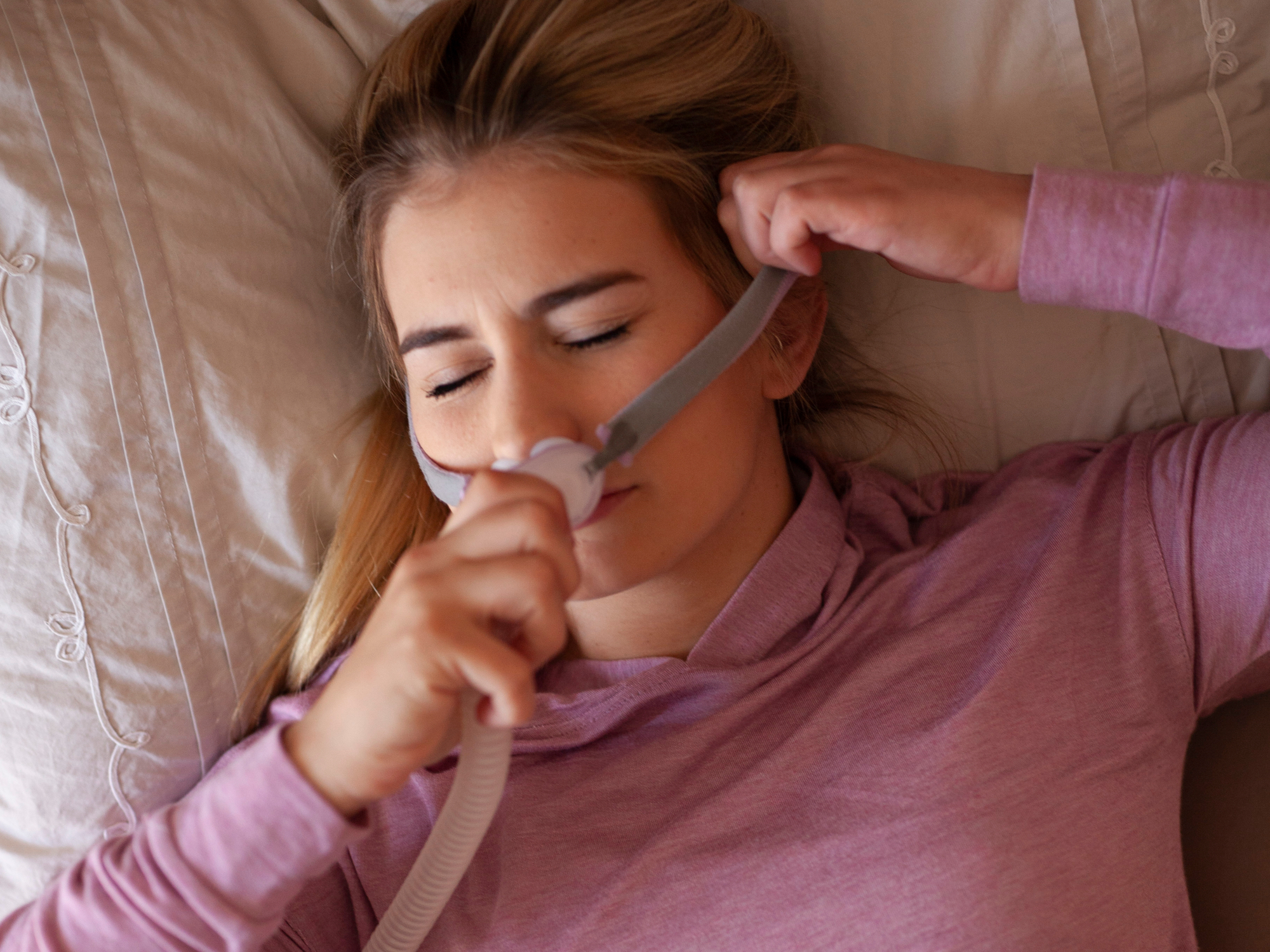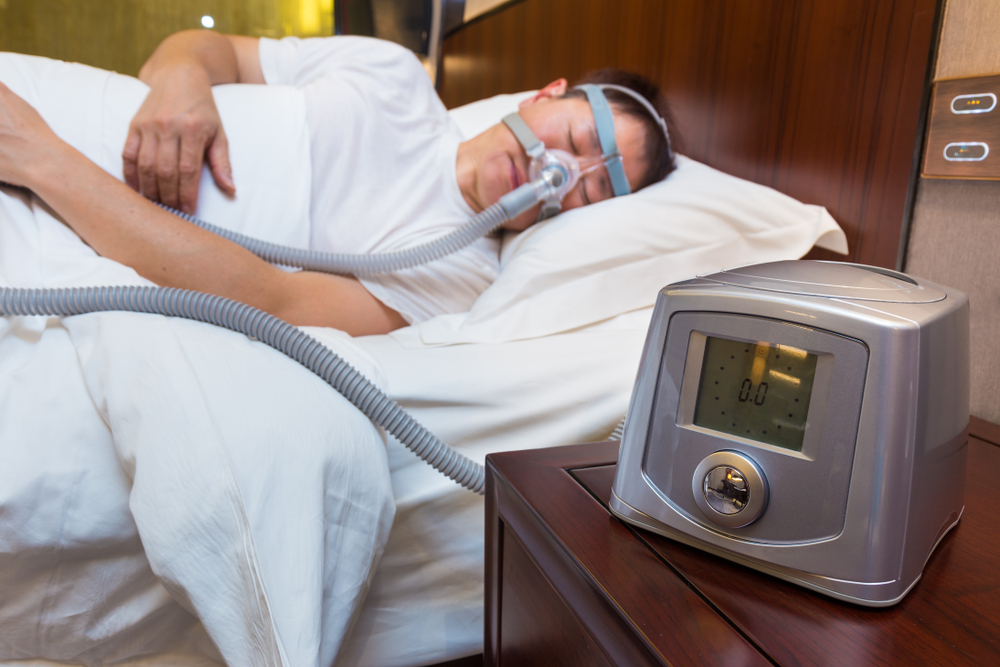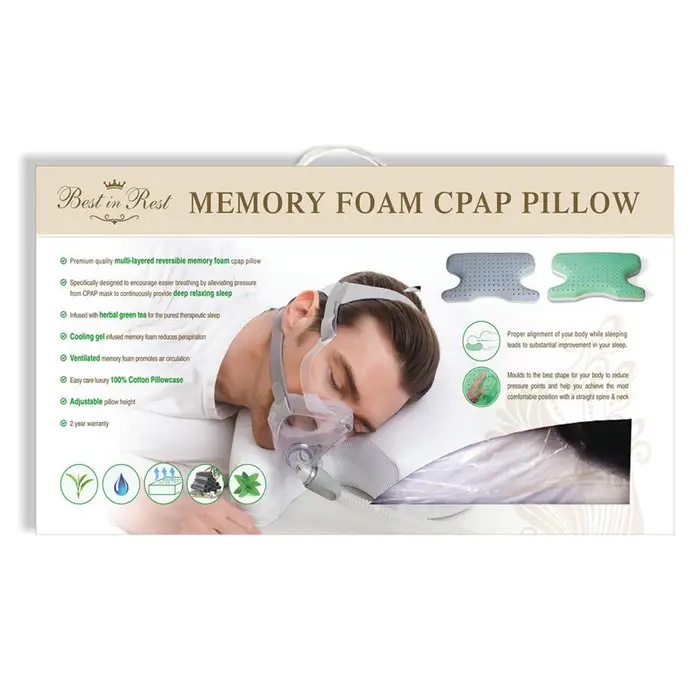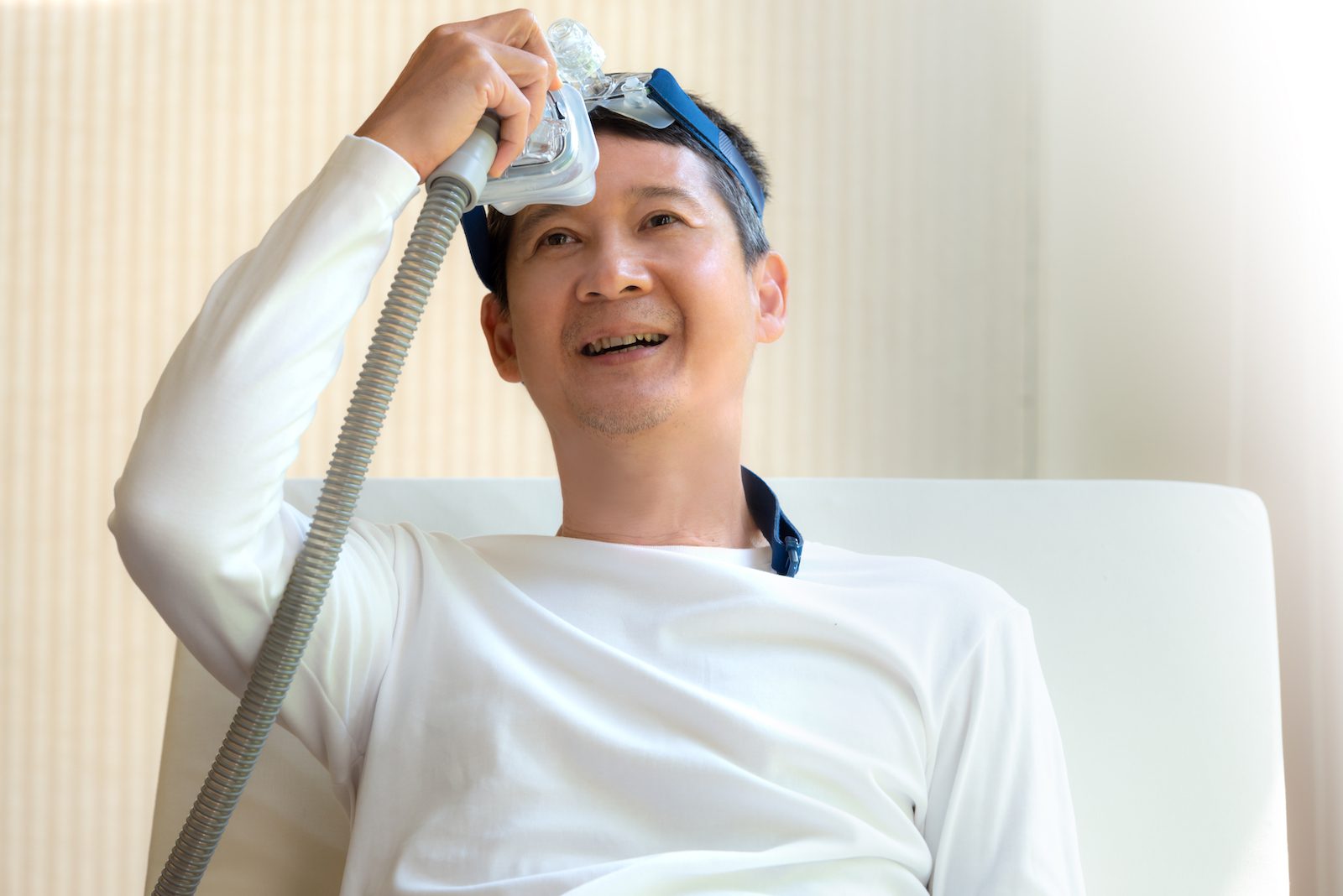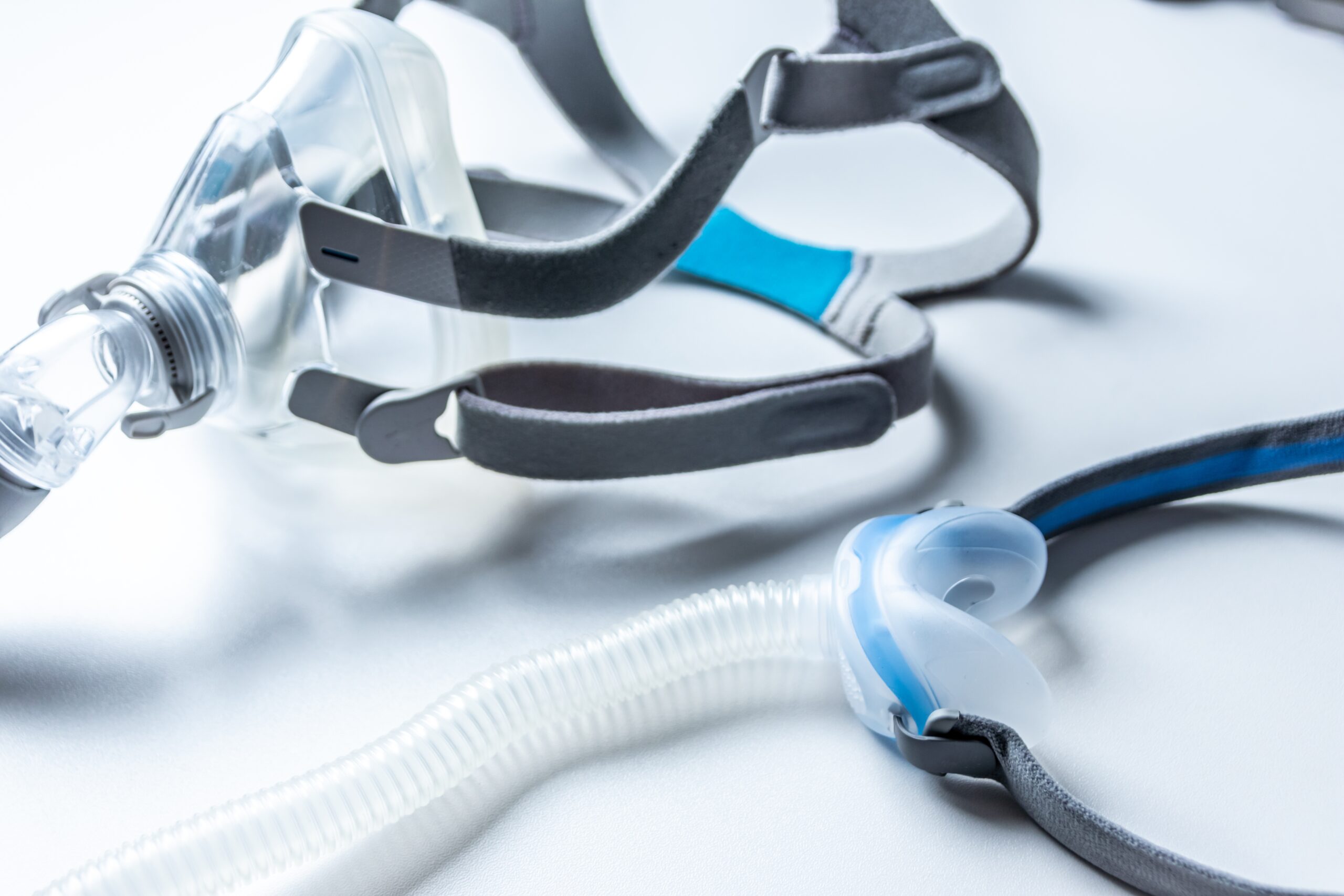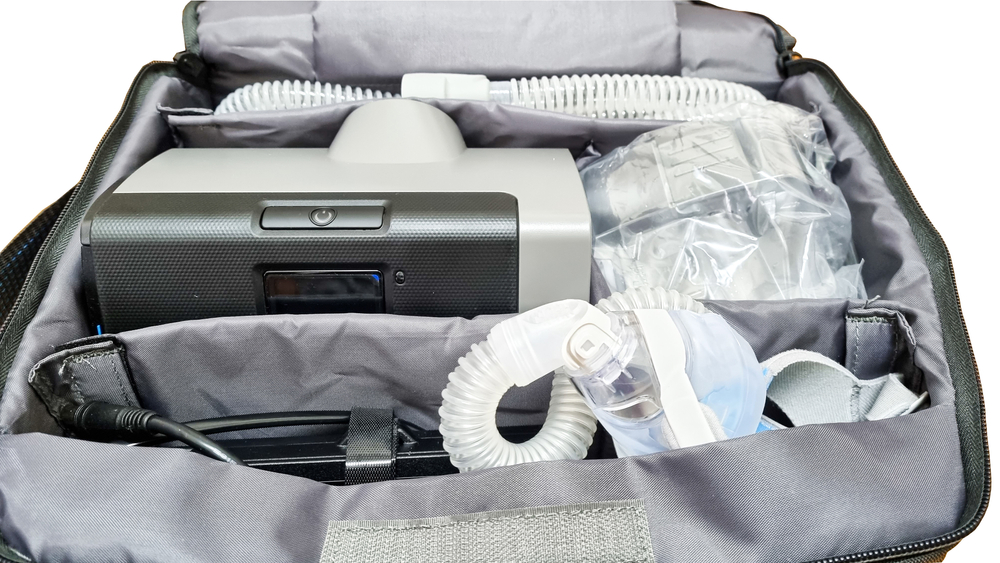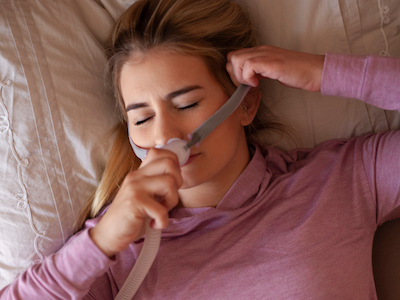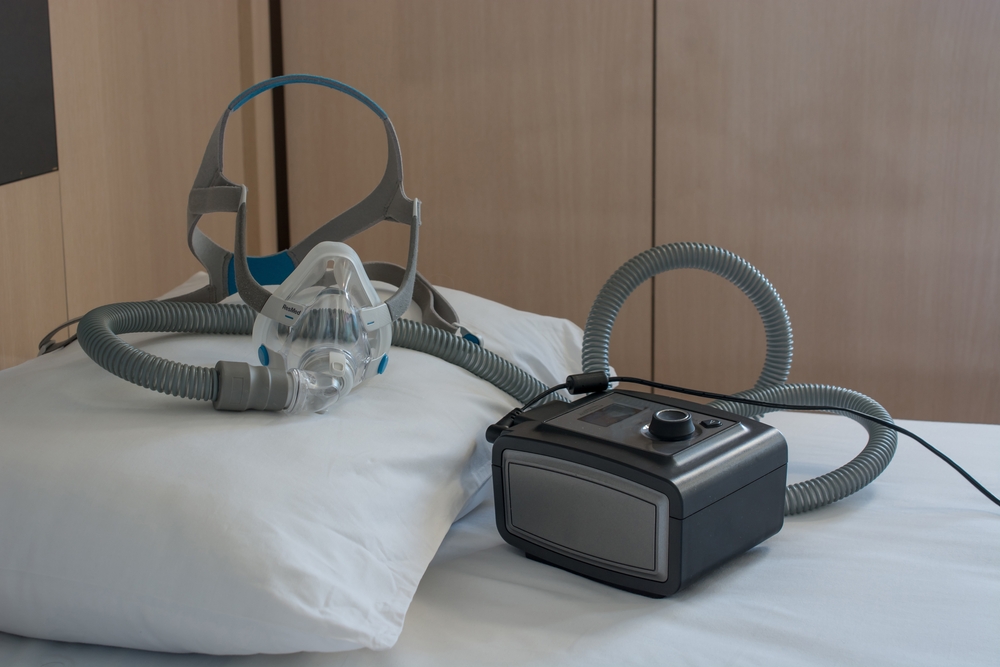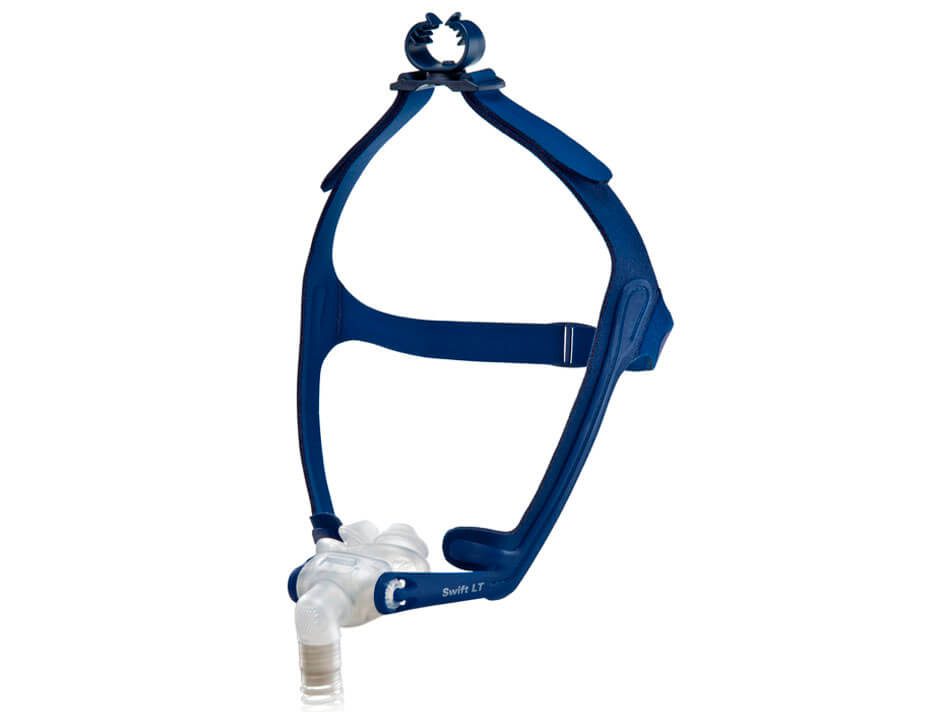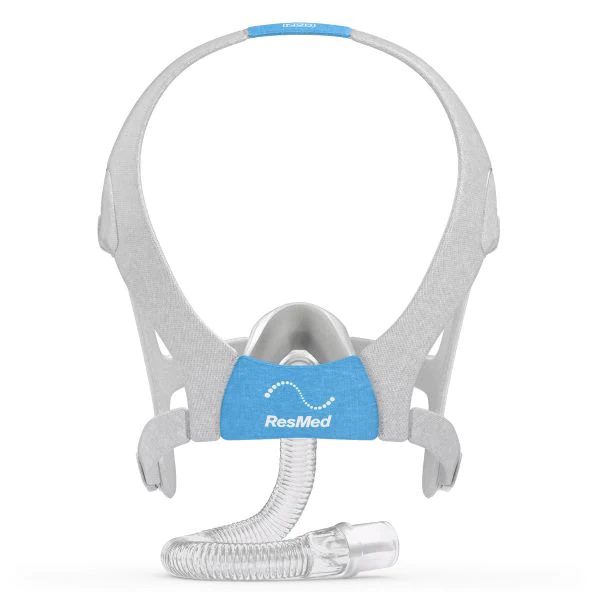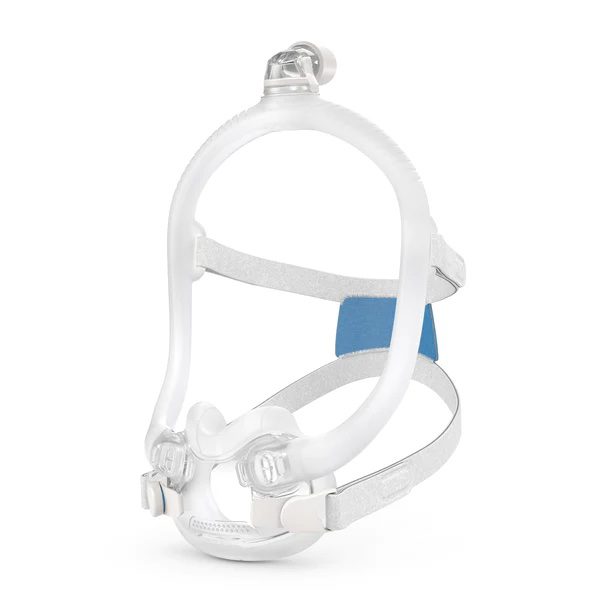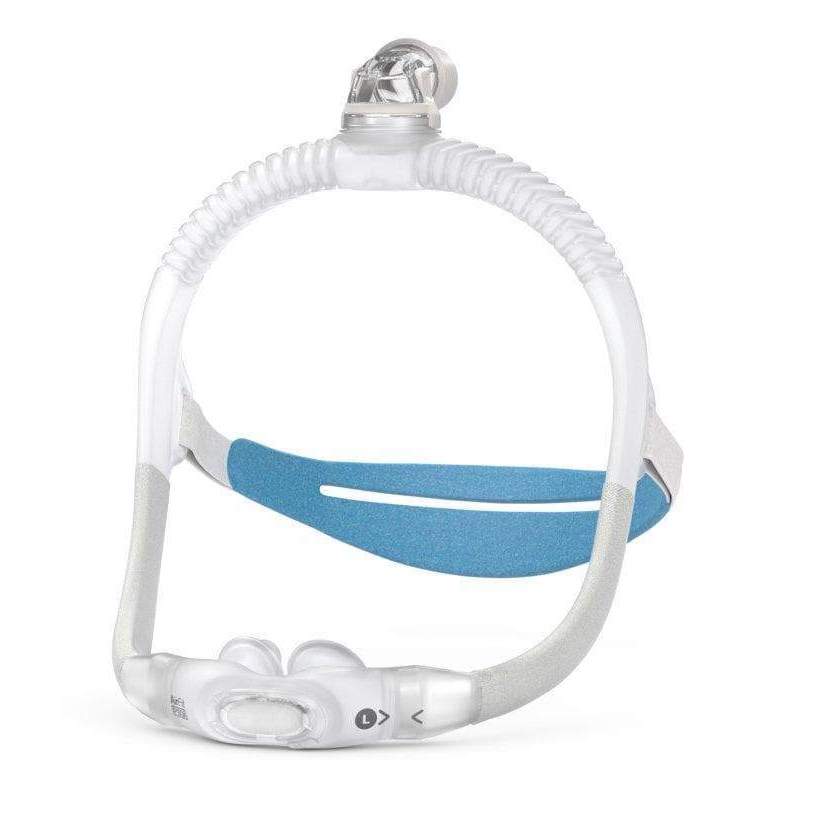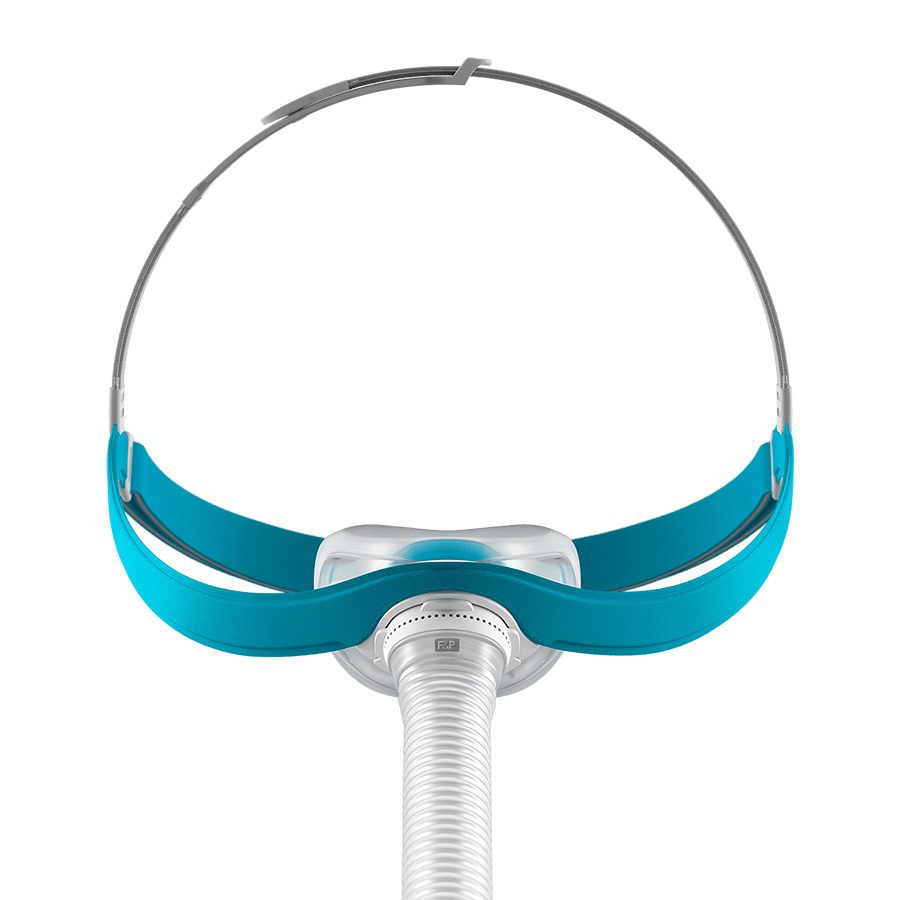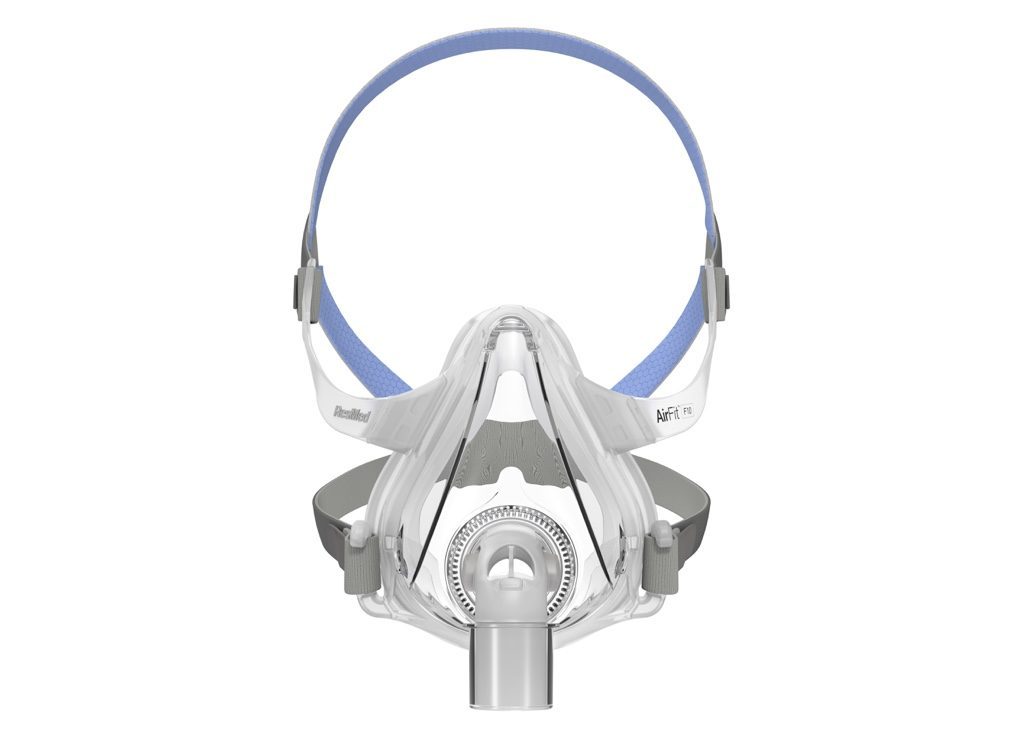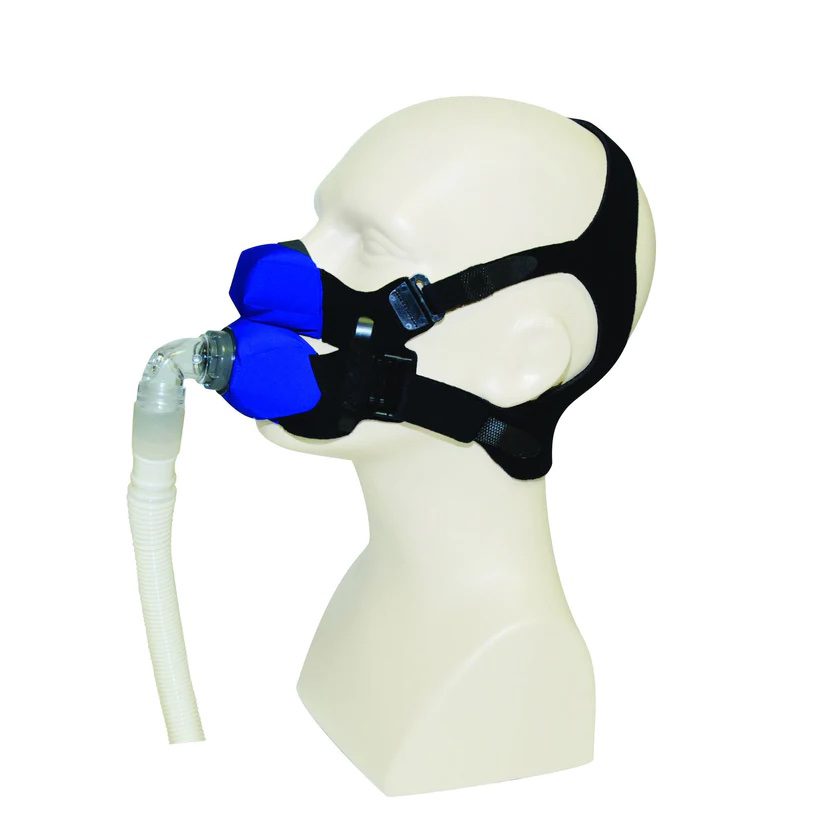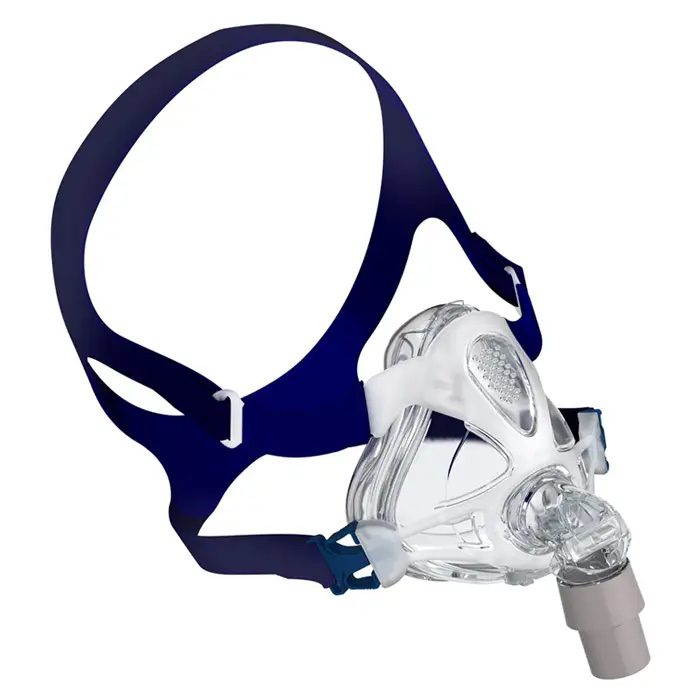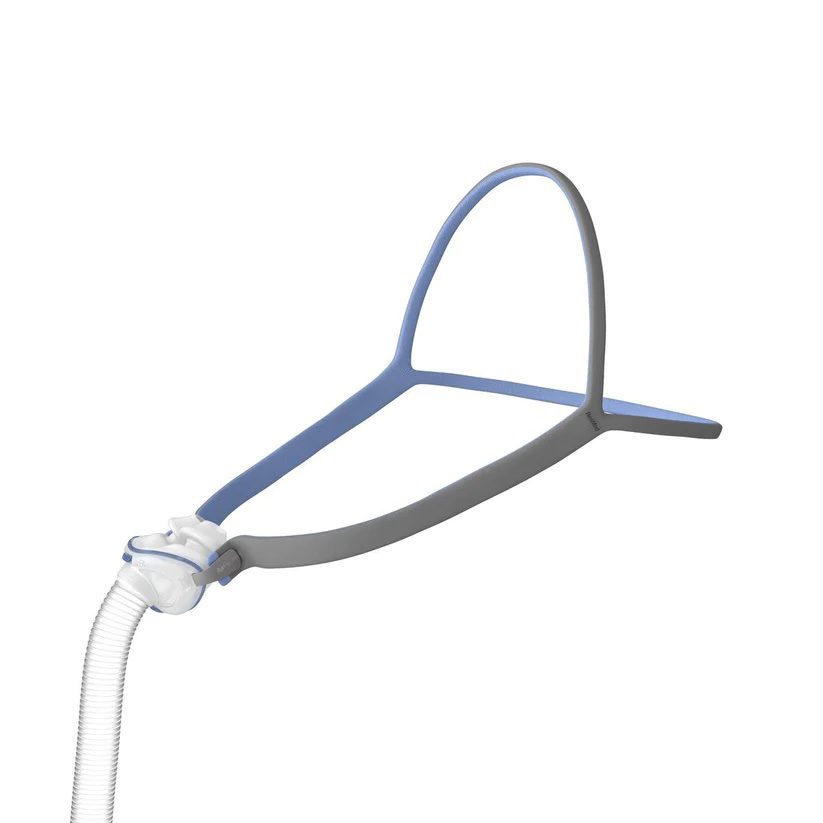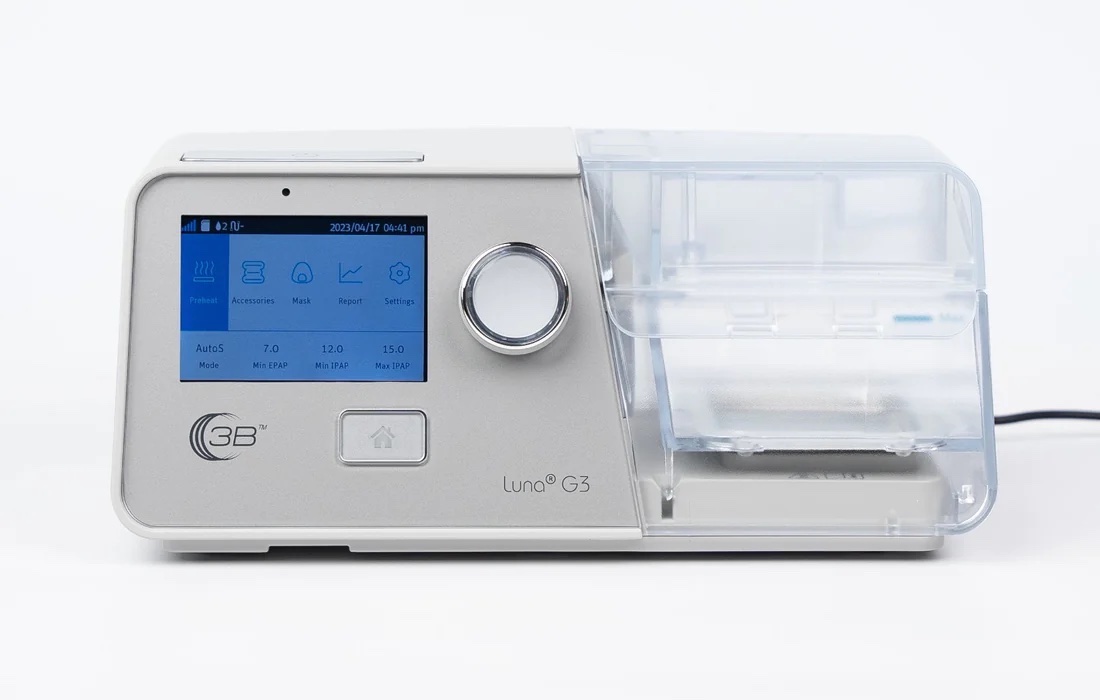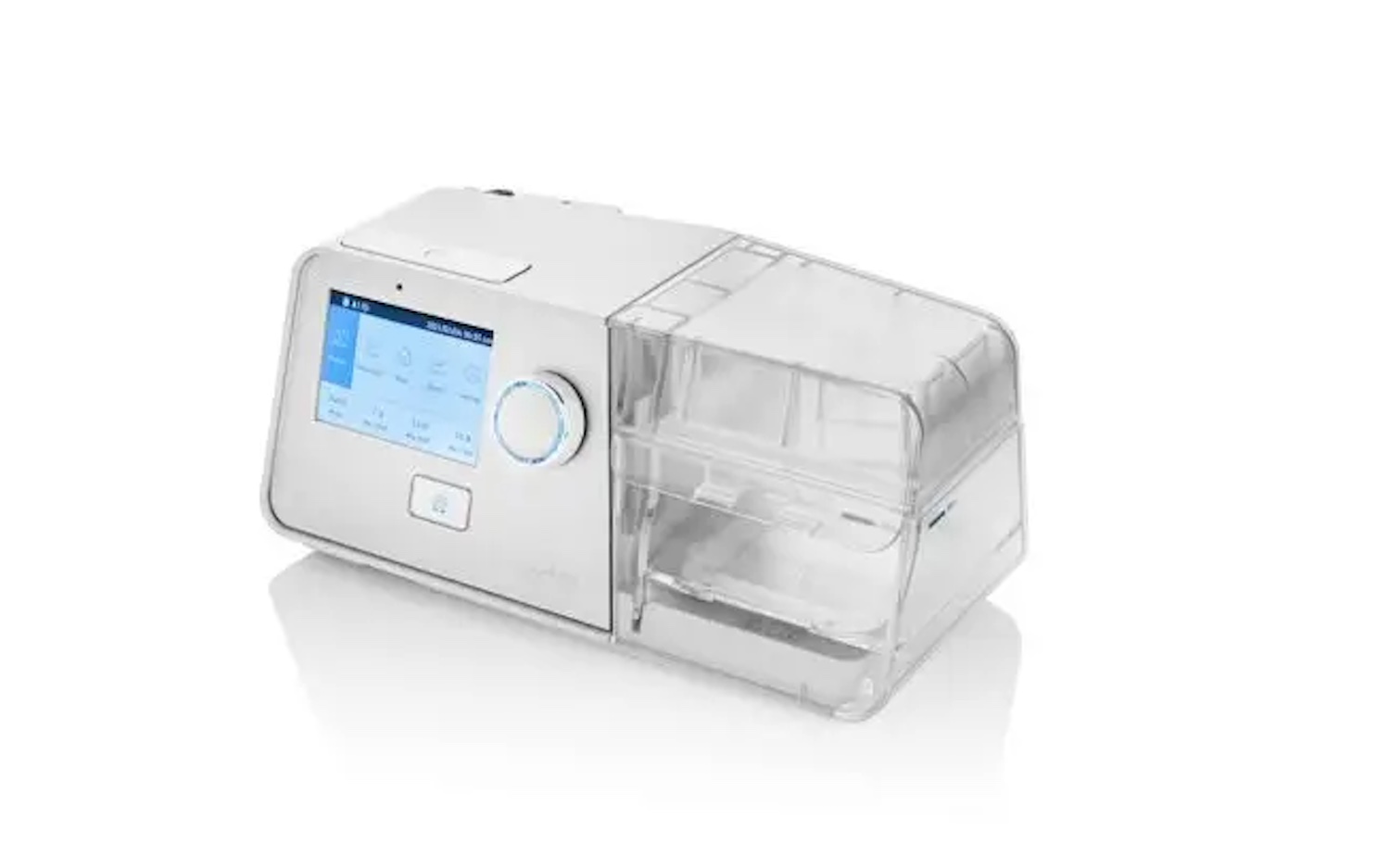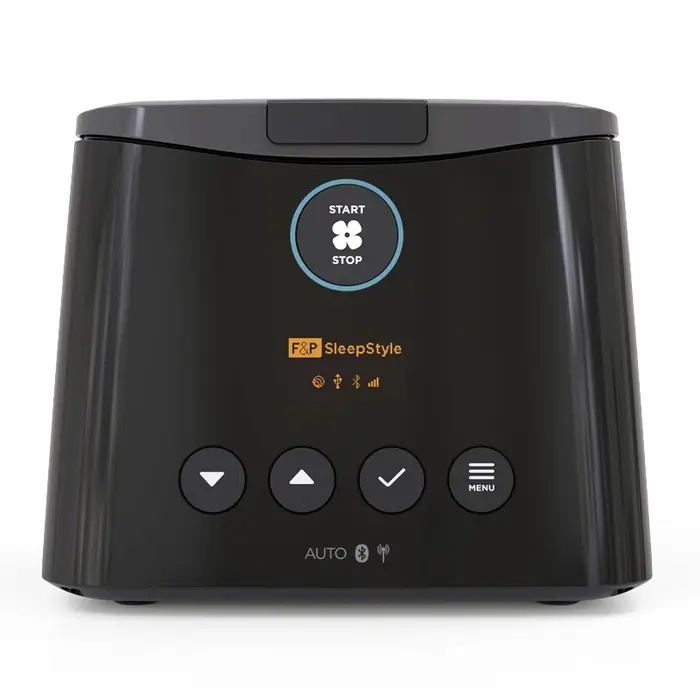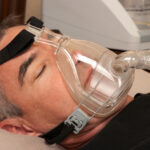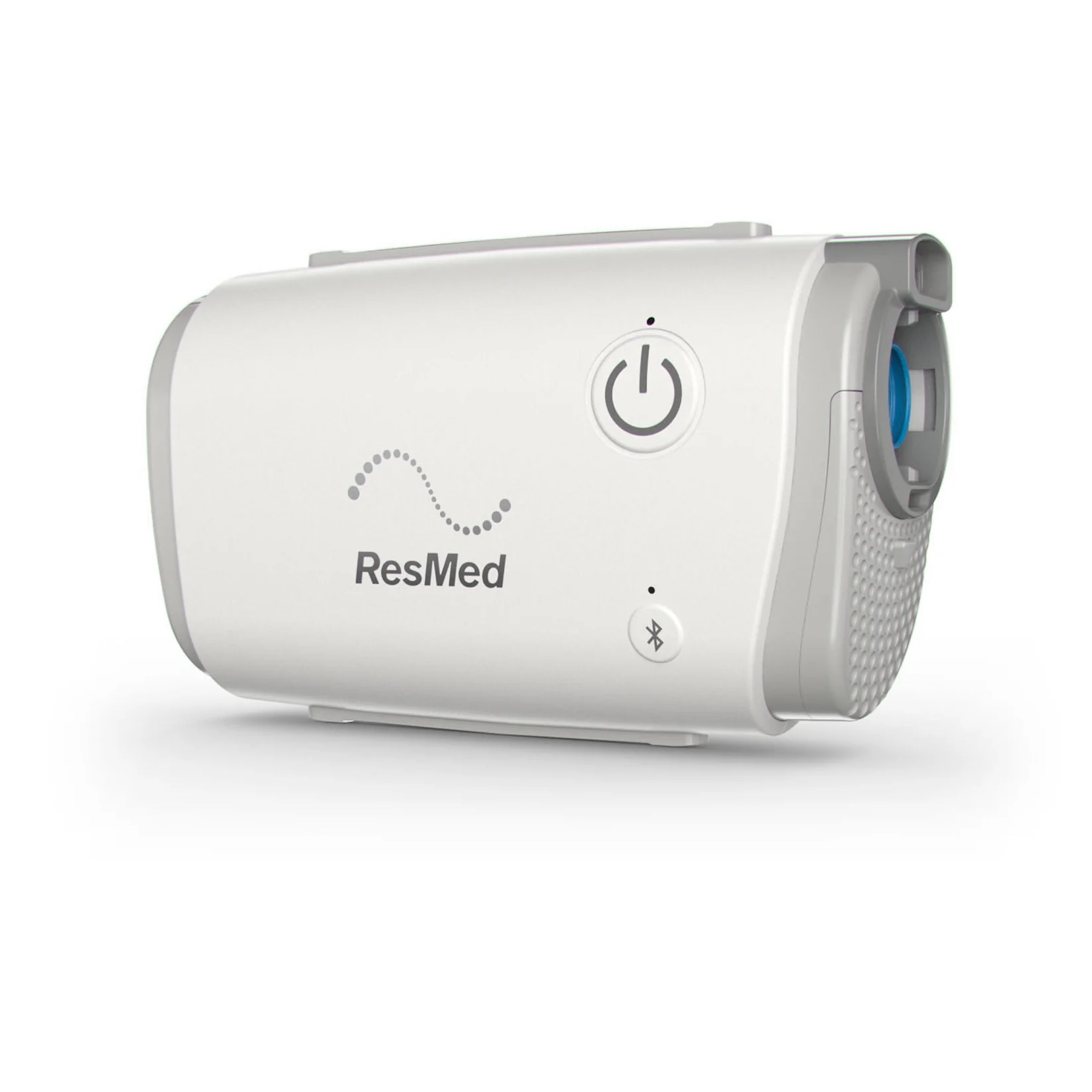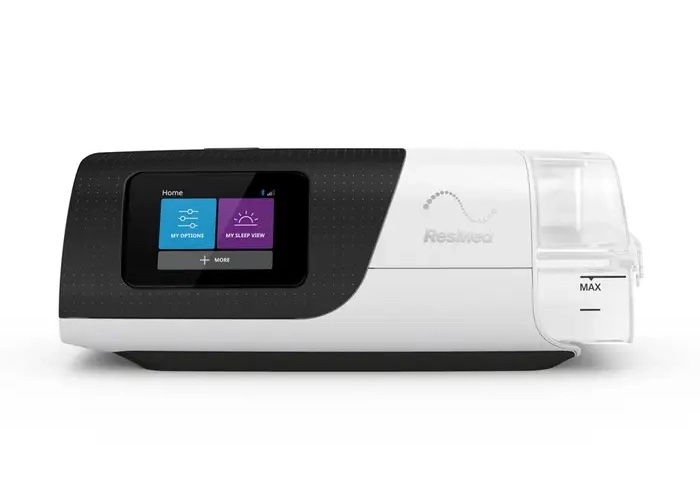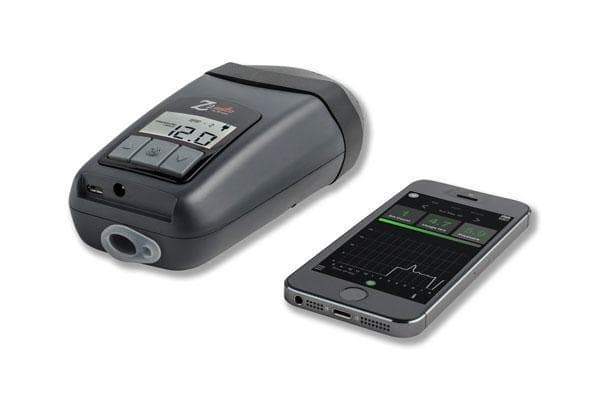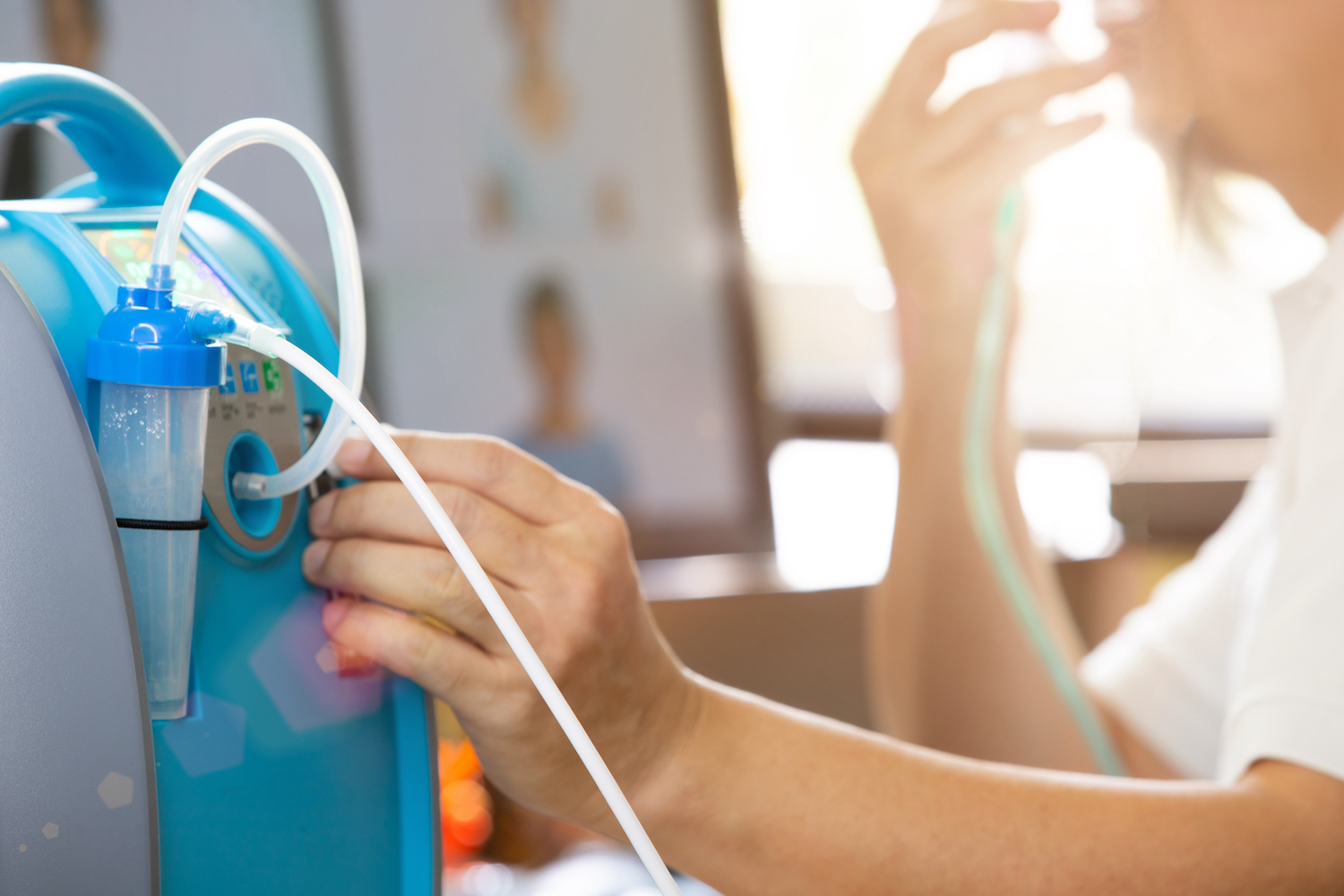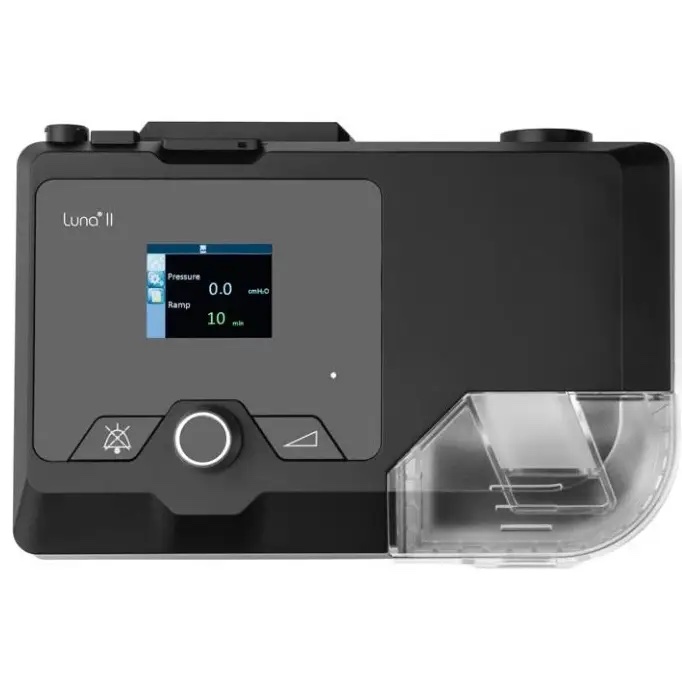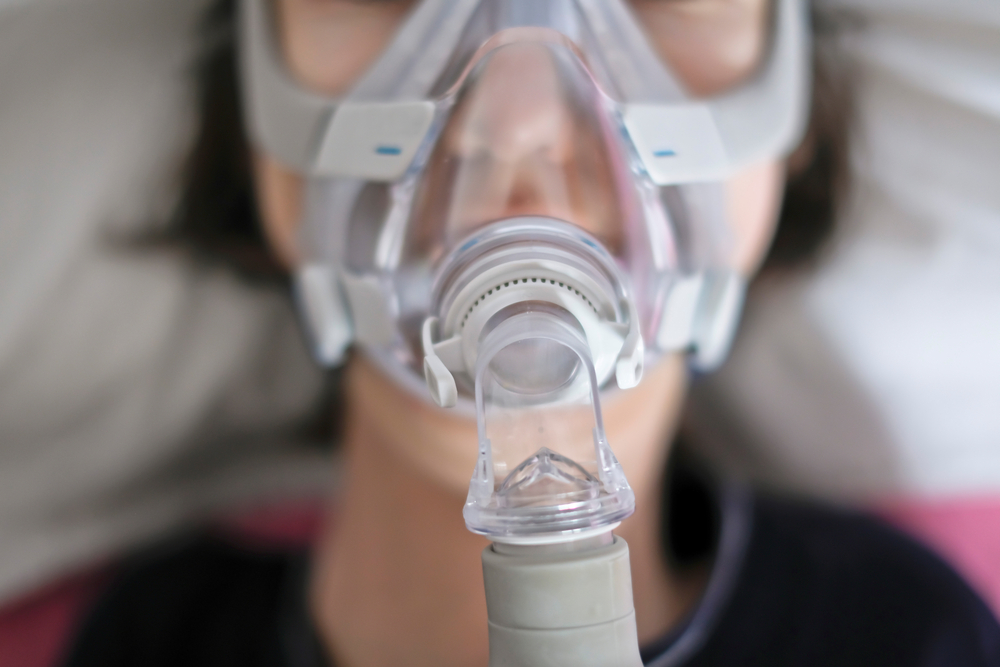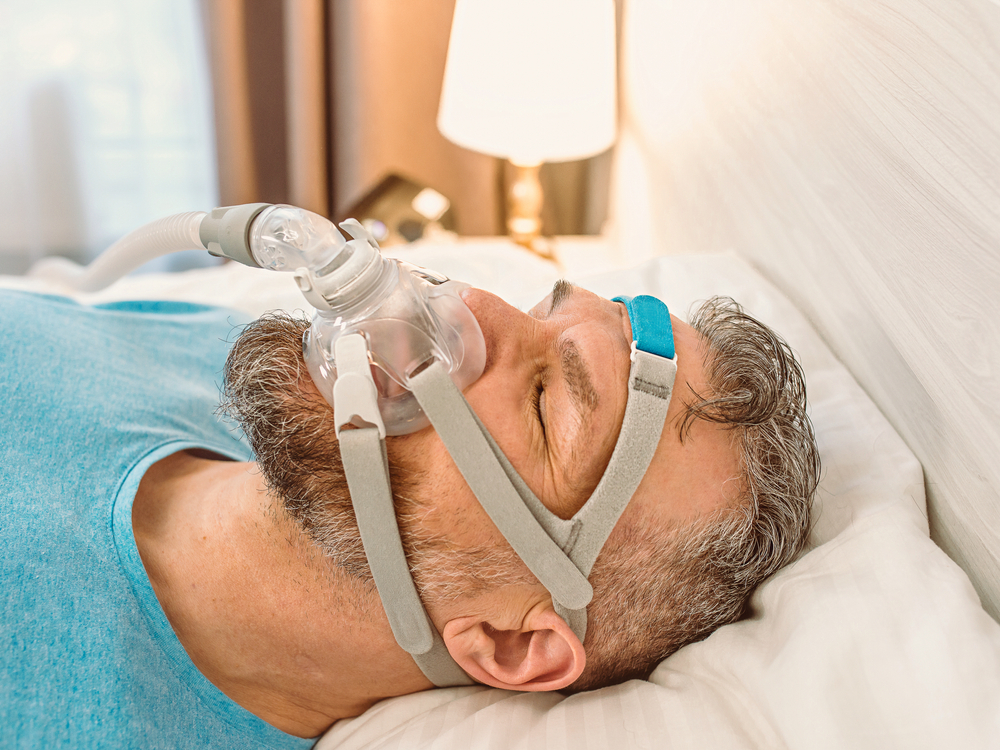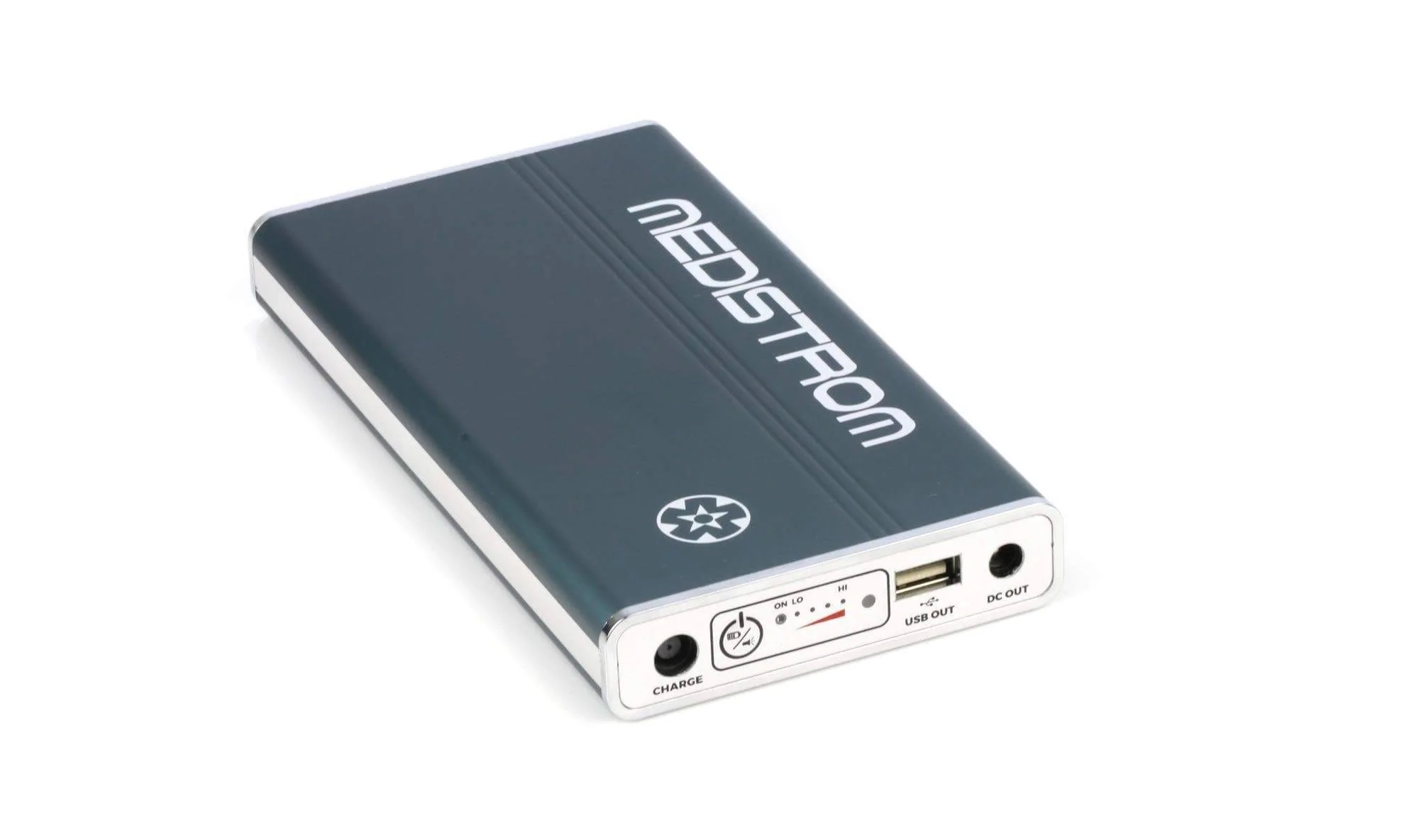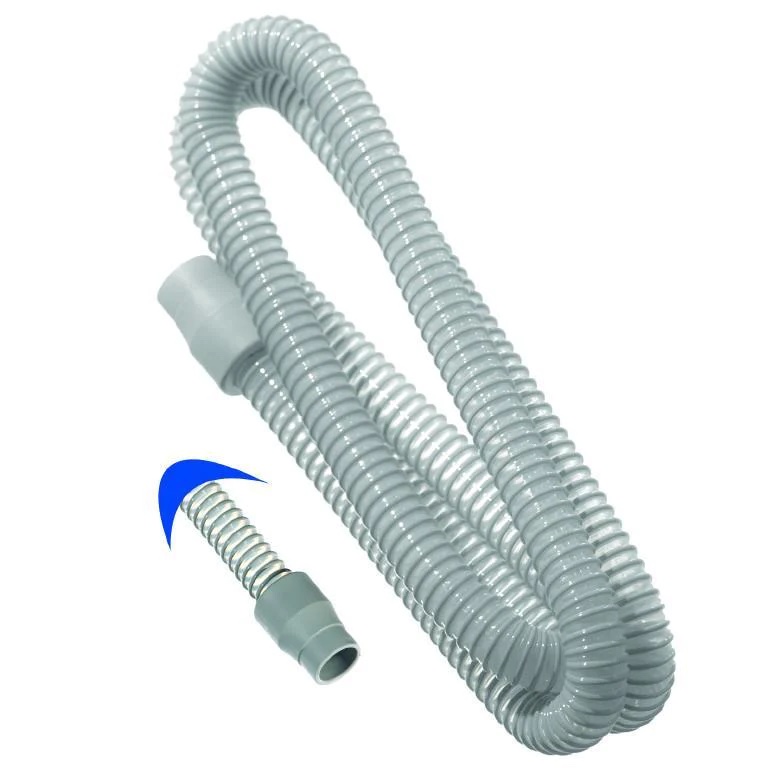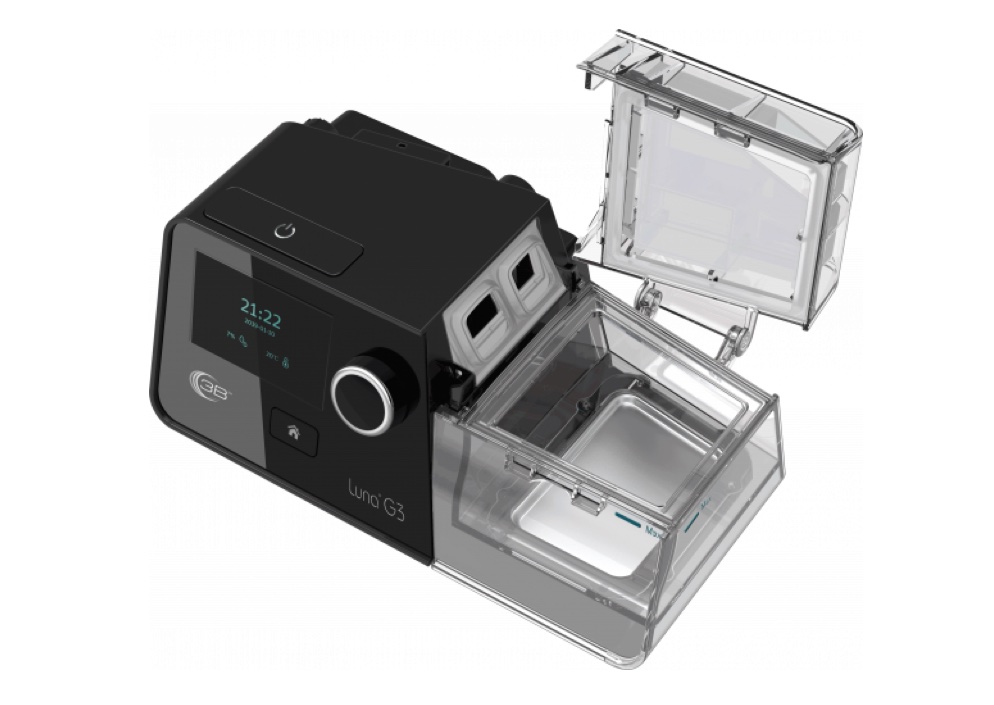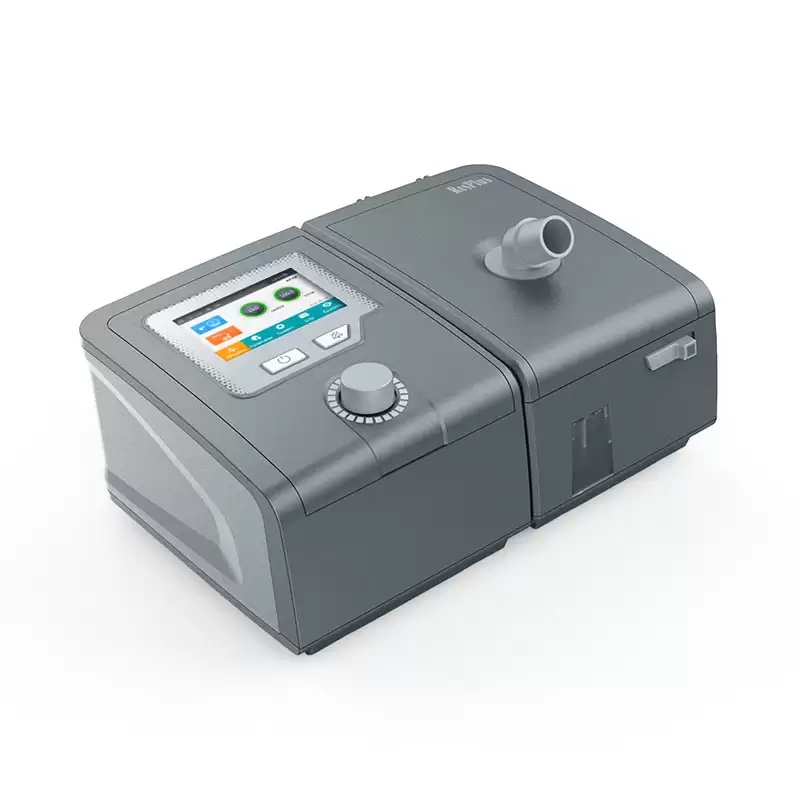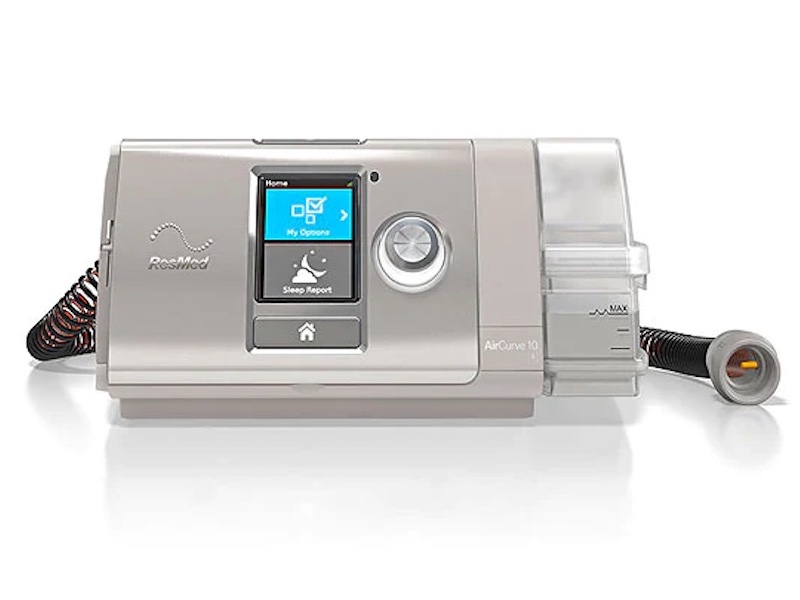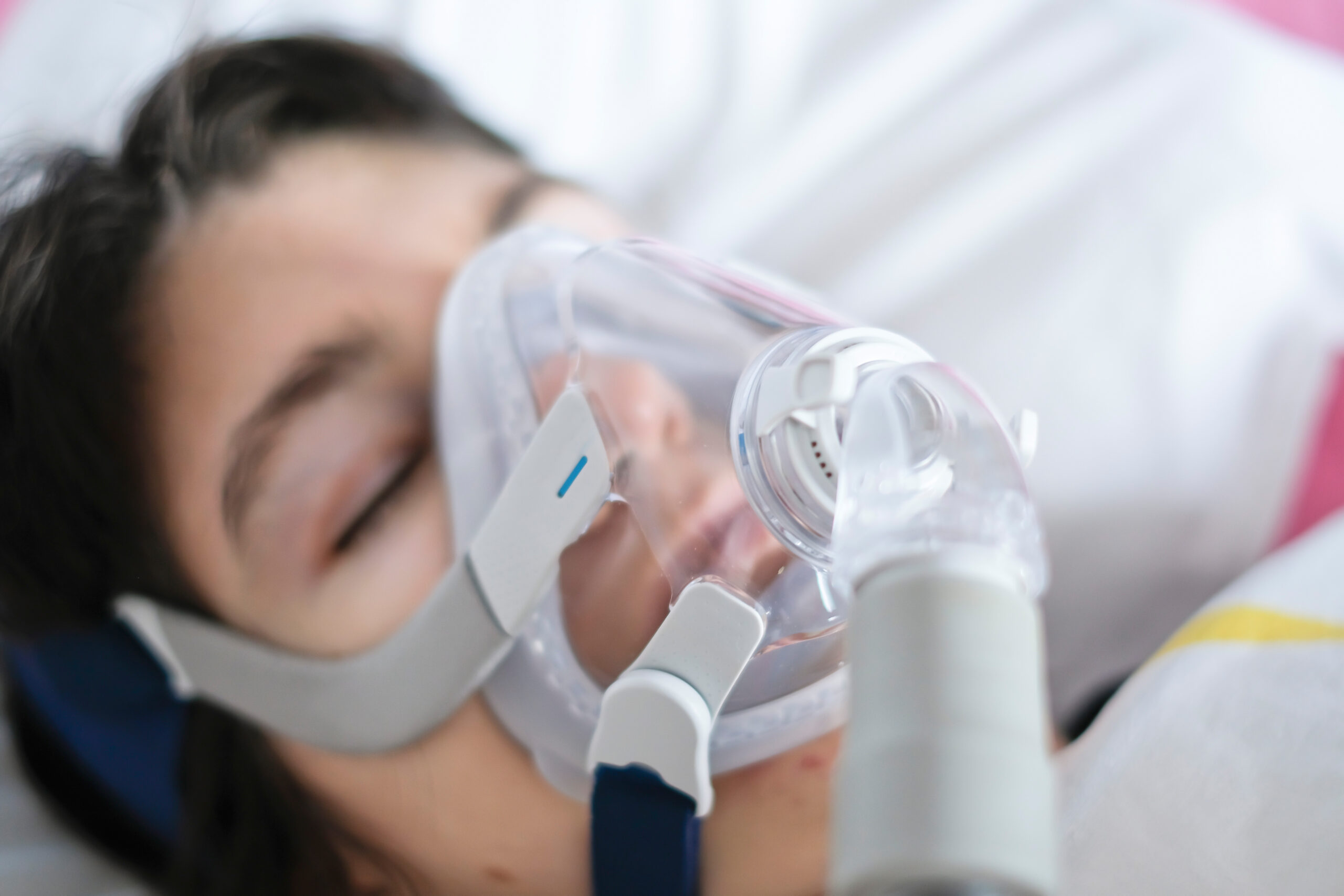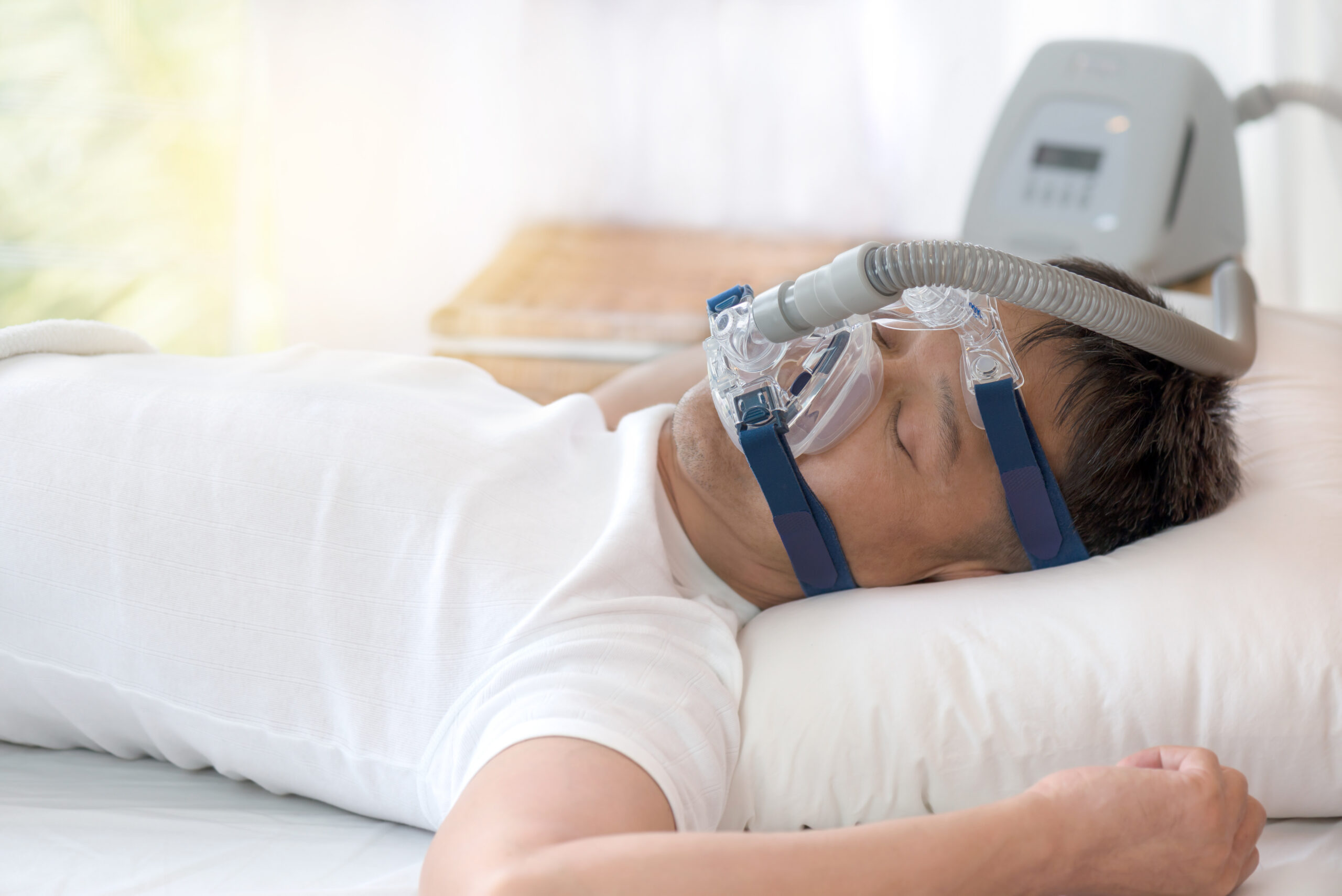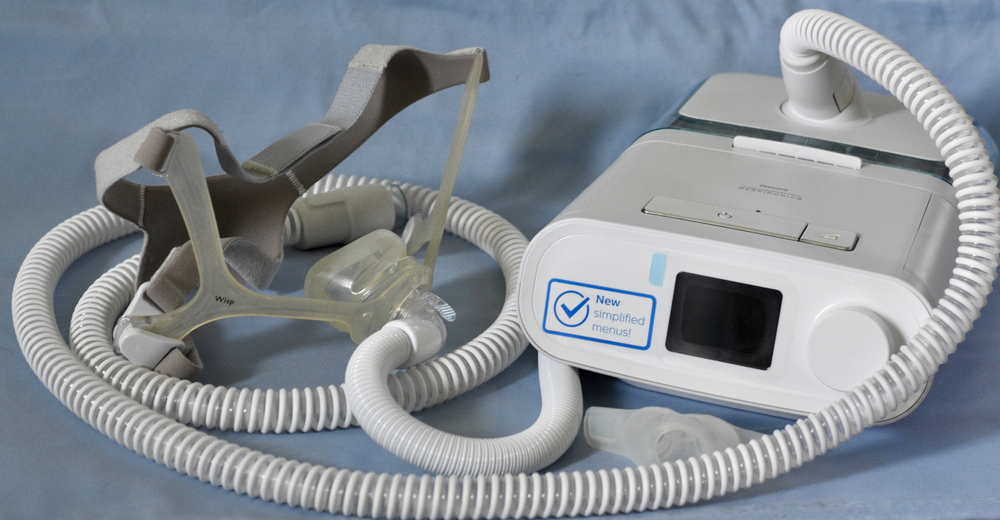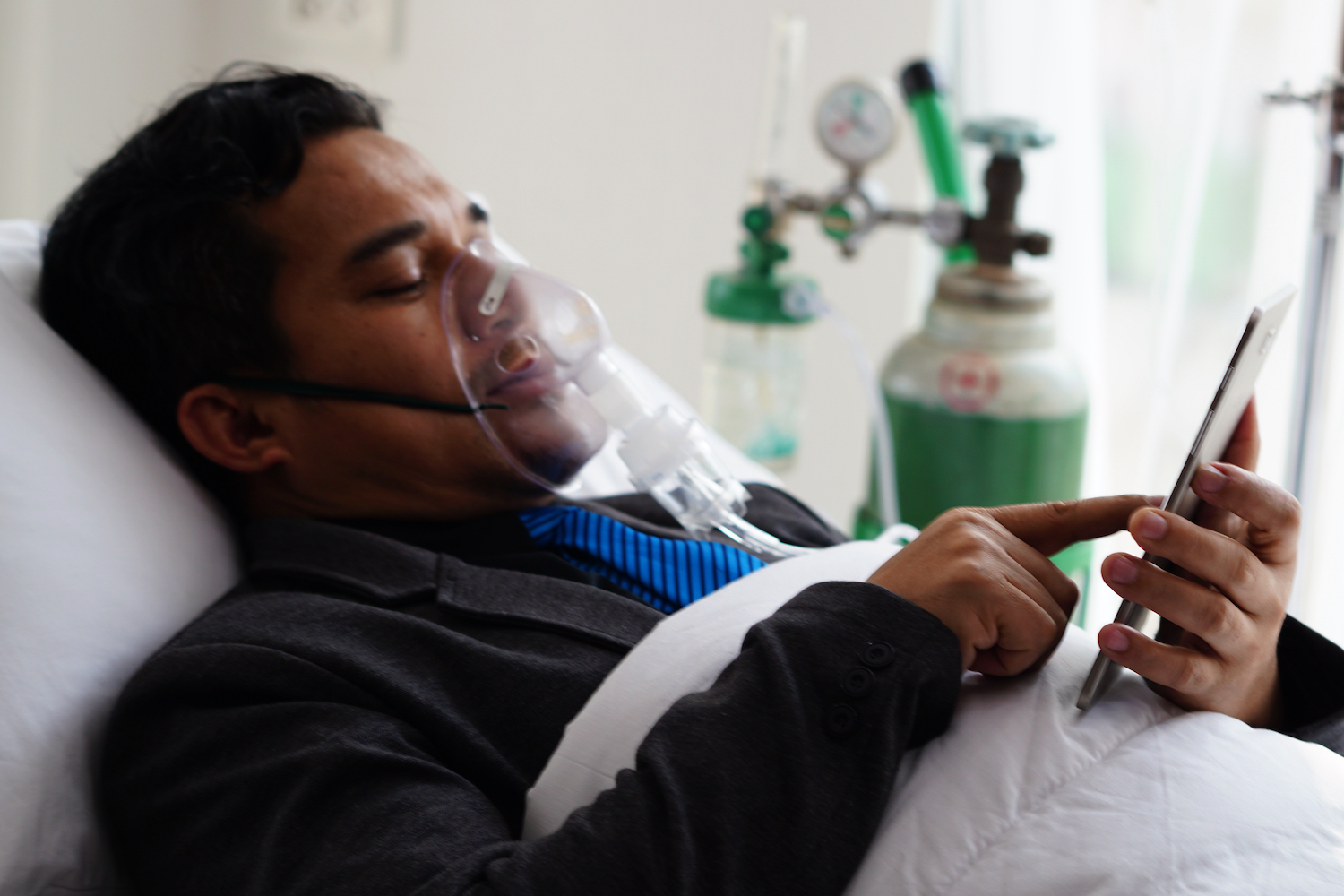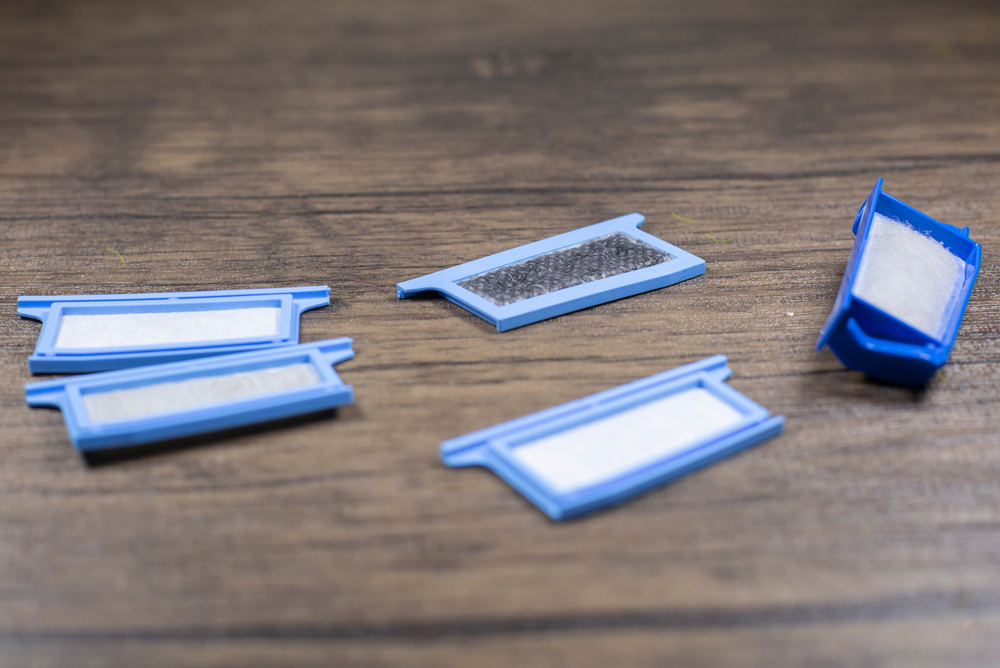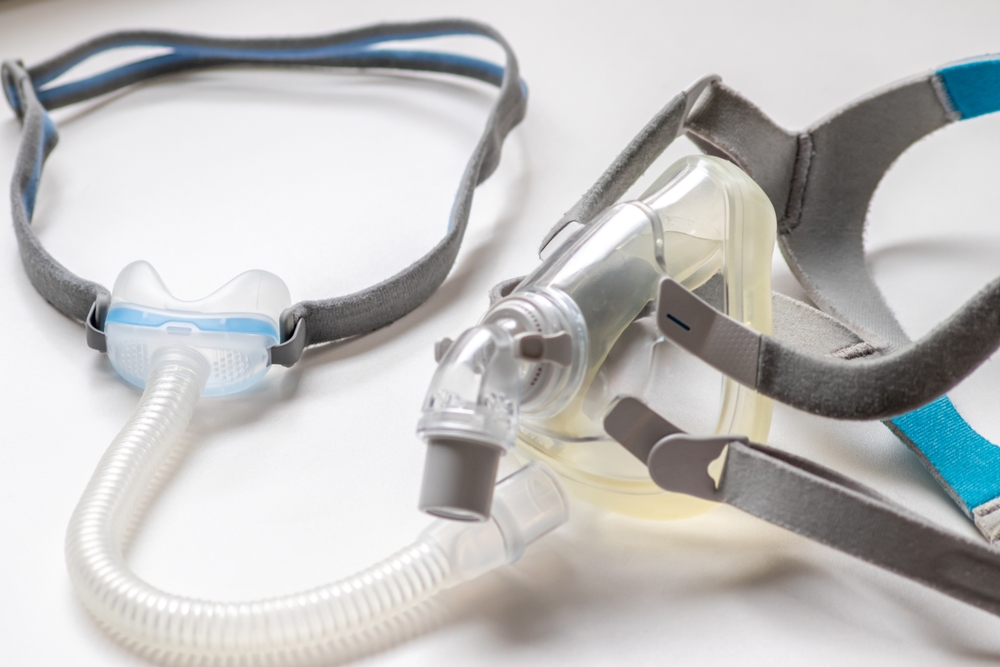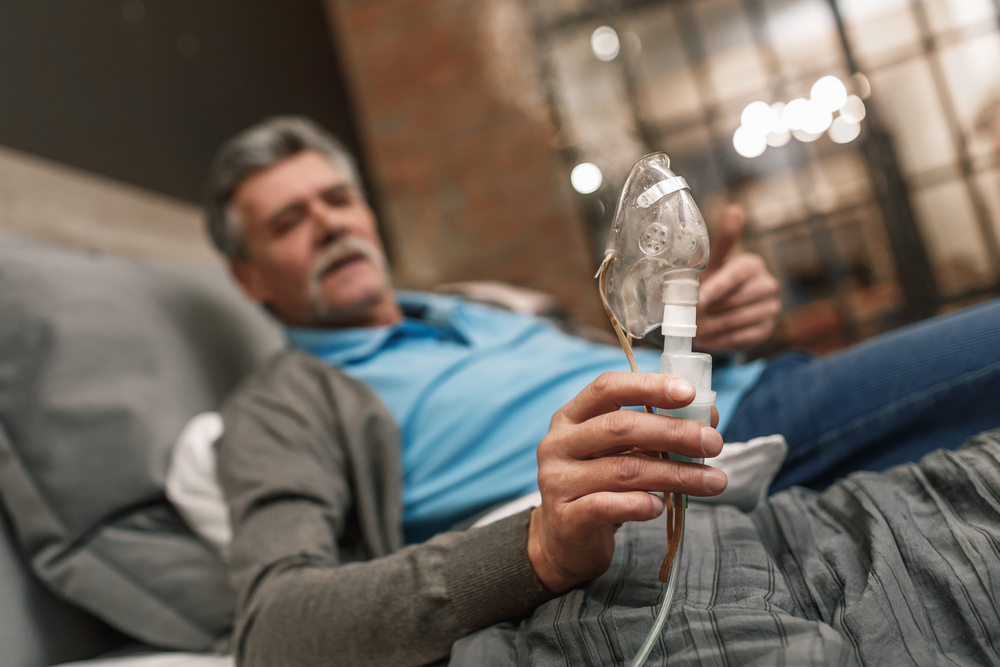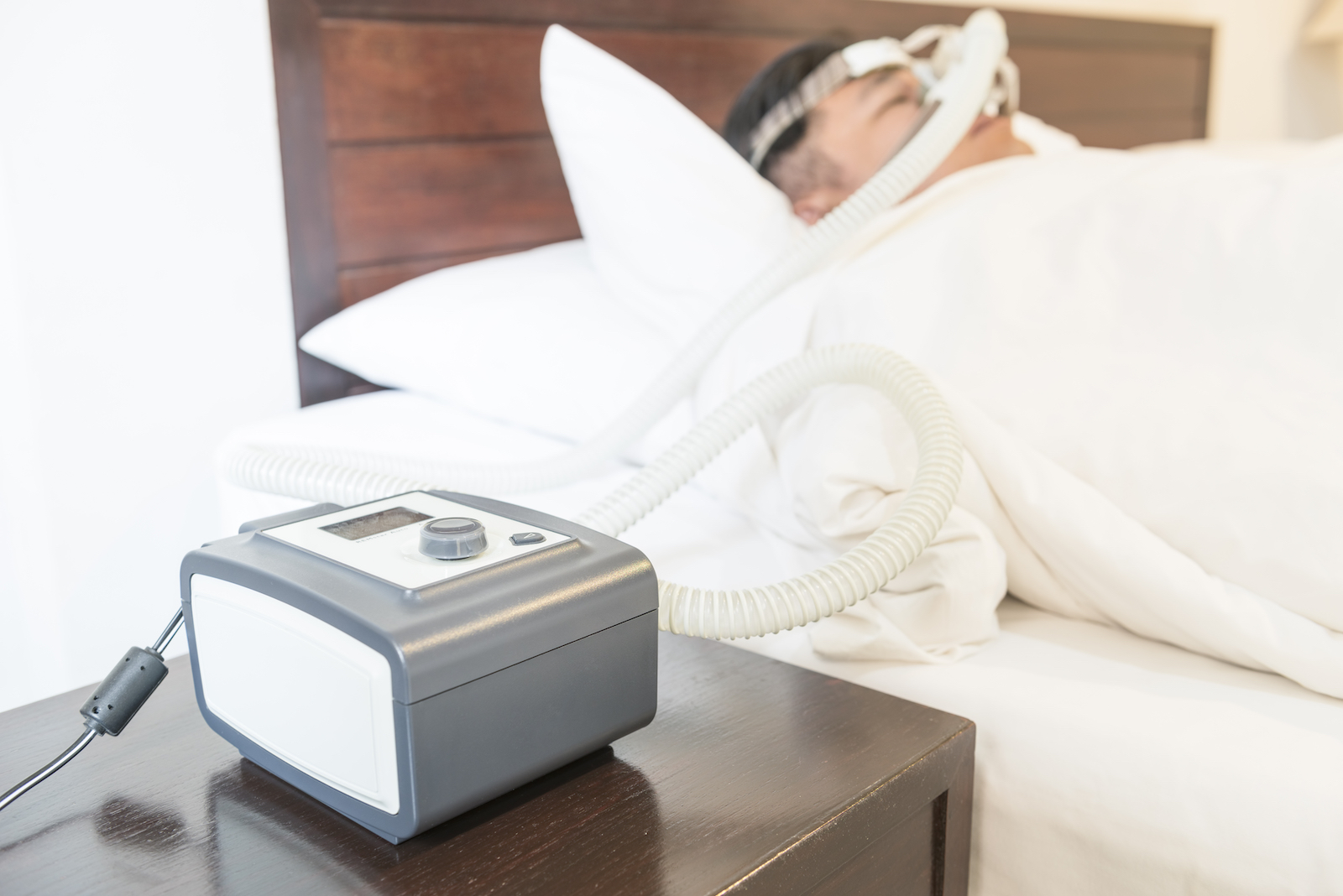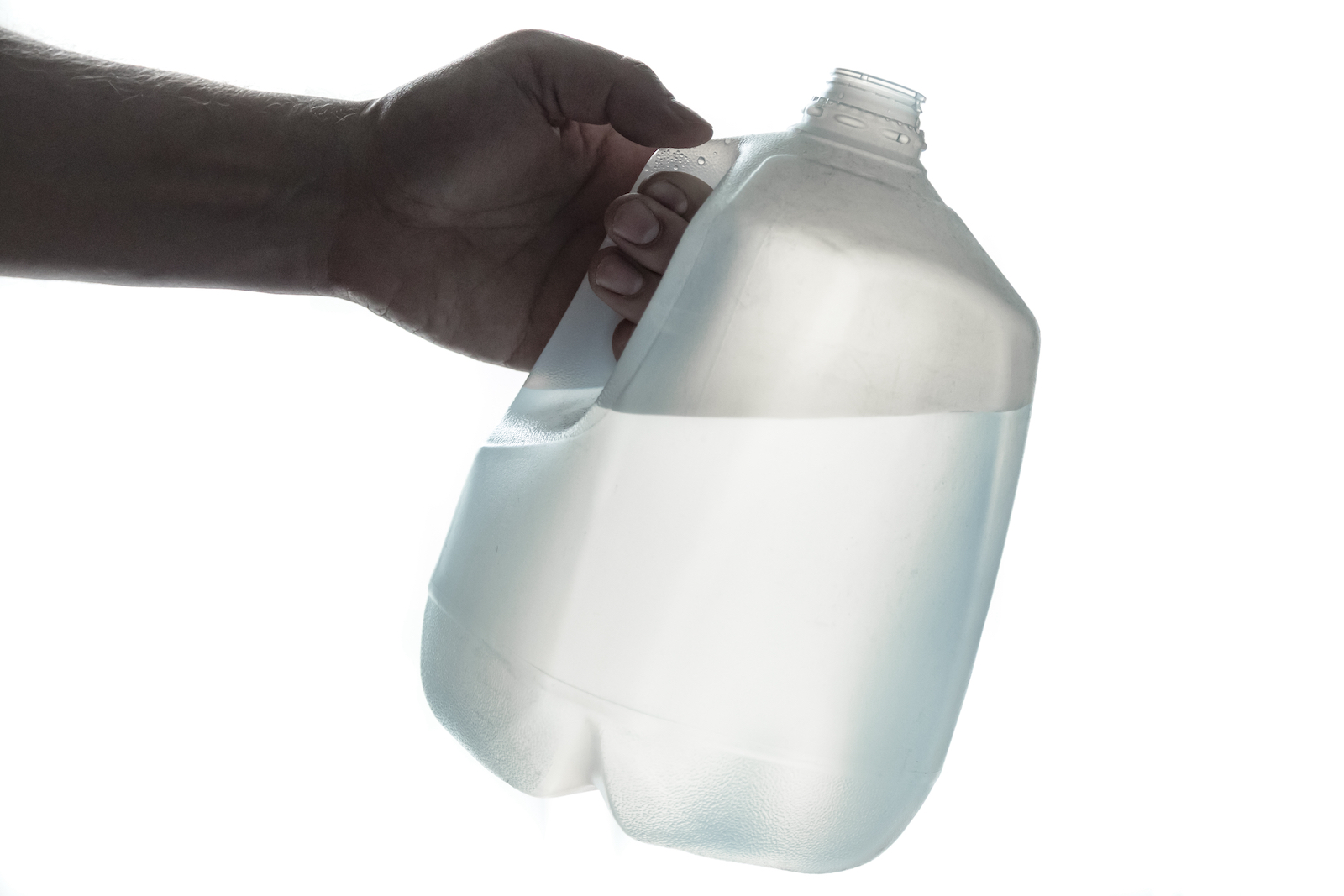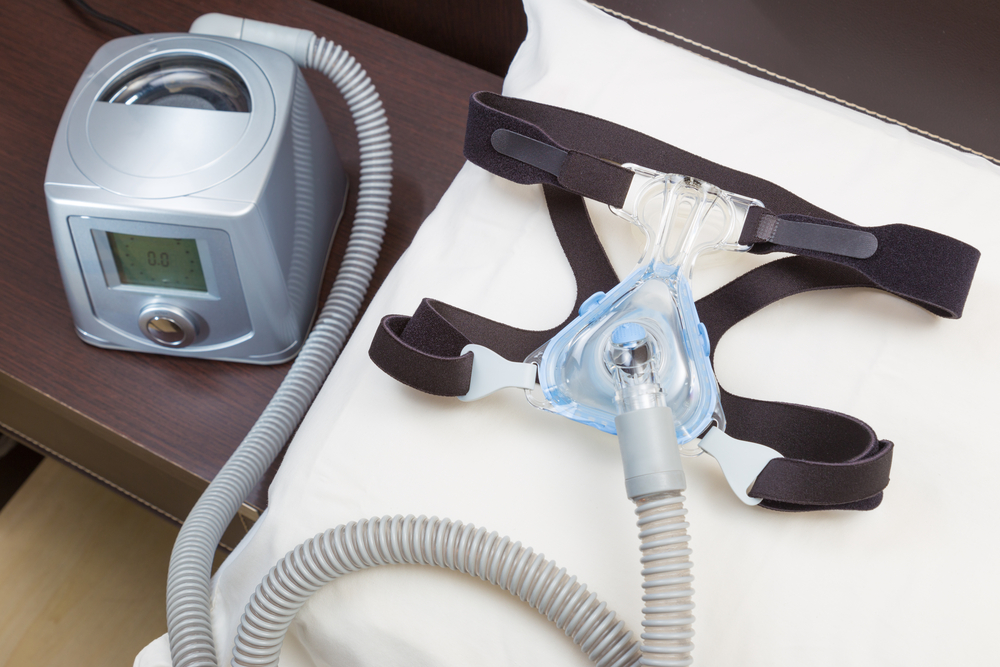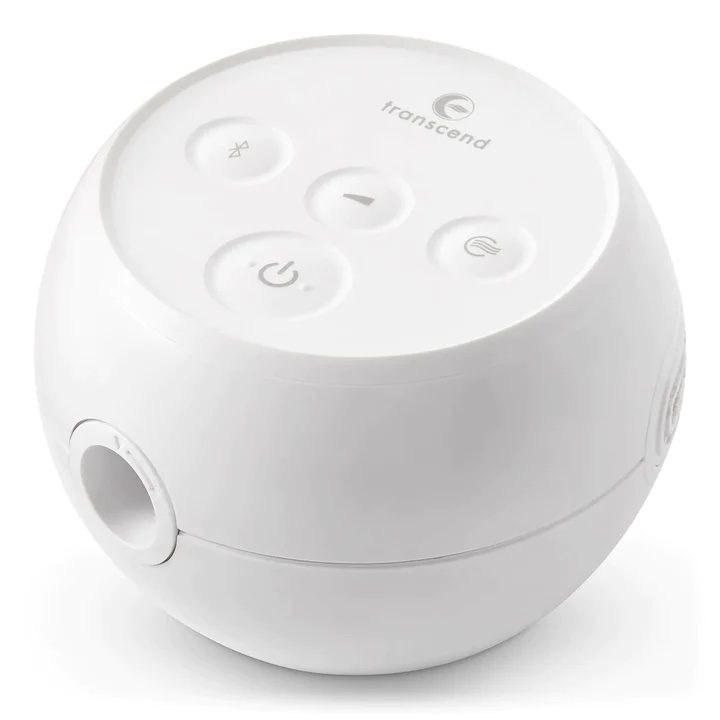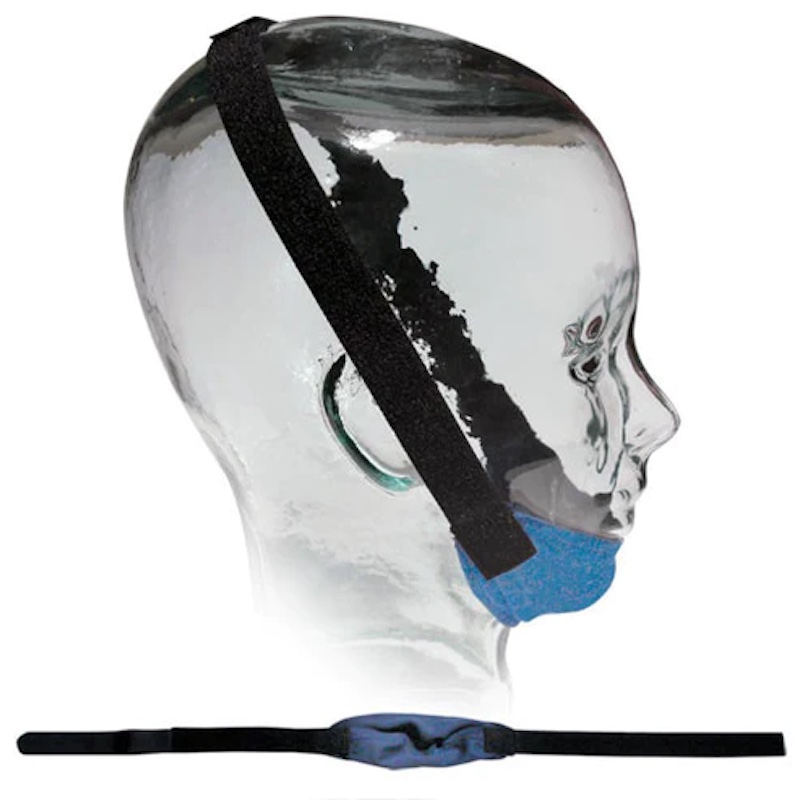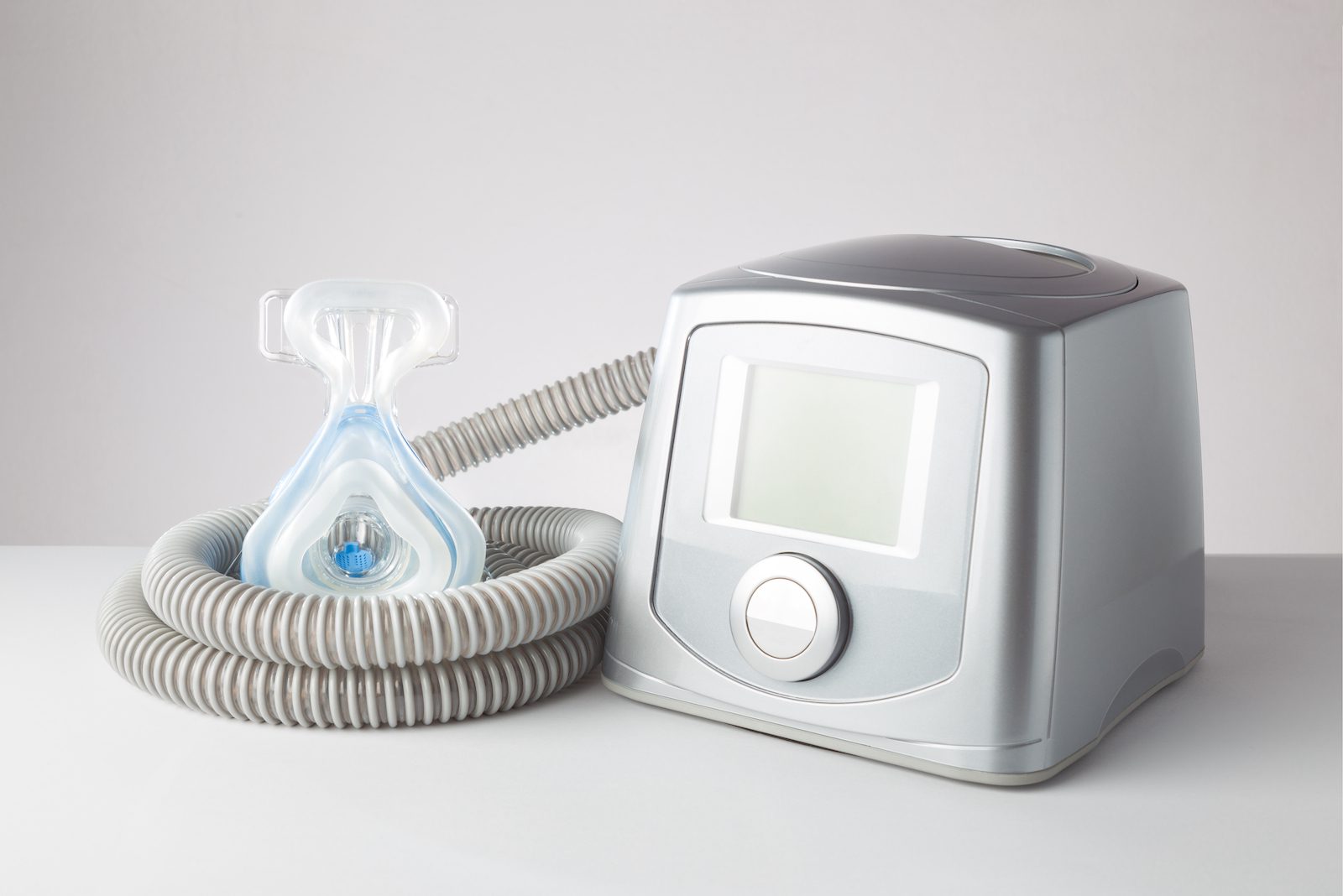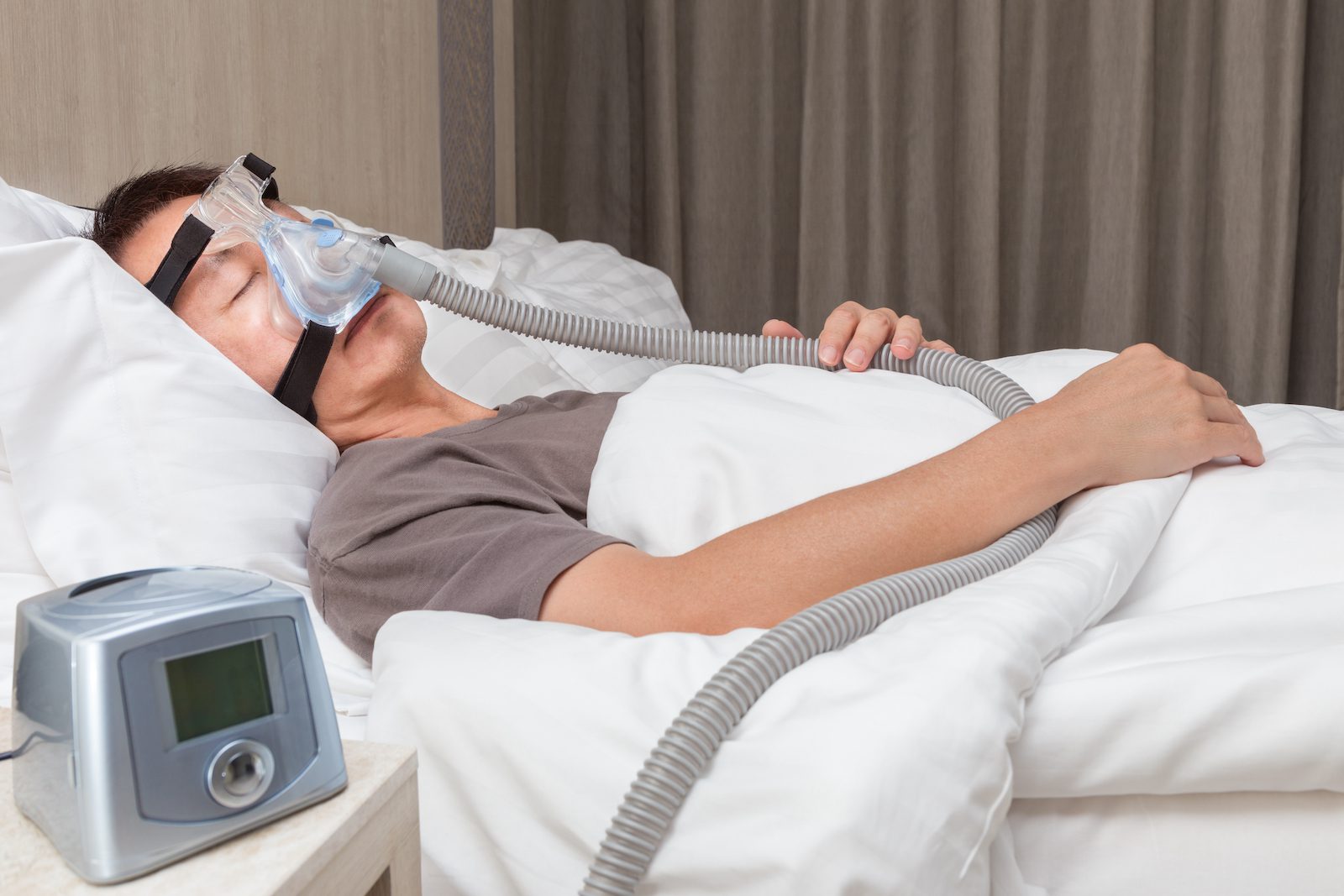Continuous positive airway pressure (CPAP) machines can cost from a few hundred to a thousand dollars, while other PAP devices tend to be more expensive. The price varies based on the type of device, its features, and whether your insurance covers some of the cost.
CPAP machines are a common treatment for obstructive sleep apnea, a disorder defined by repetitive reductions in breathing during sleep. A CPAP machine works by delivering pressurized air through a hose and mask to promote undisturbed breathing. We cover all the details about how much CPAP machines and their accessories usually cost.
How Much Is a CPAP Machine?
Positive airway pressure (PAP) devices like CPAP machines typically cost between $500 and $3,000. This price range reflects wide variation based on the PAP device’s brand, model, and features.
There are three main types of PAP machines, each with different functions.
- Continuous positive airway pressure (CPAP): The stream of air generated by a CPAP machine has the same amount of air pressure regardless of whether you are inhaling or exhaling. For obstructive sleep apnea, it is most common to start treatment with a CPAP device. CPAP machines typically cost between $500 and $1,000.
- Bilevel positive airway pressure (BiPAP or BPAP): Bilevel devices allow you to have different air pressure when breathing in and breathing out. A BiPAP machine can also provide breathing assistance for more complicated respiratory problems. BiPAP machines generally cost between $1,700 and $3,000.
- Auto-adjusting positive airway pressure (APAP): APAP machines typically provide the same air pressure during inhalation and exhalation, but the device uses sensors to monitor breathing and modify the pressure level as needed. APAP devices usually cost between $600 and $1,600.
How Much Are CPAP Masks and Accessories?
A mask and other accessories are necessary to use a CPAP machine. While you will likely be provided with a set of these items when you get started with CPAP therapy, they will need to be periodically replaced. As a result, there are recurring costs to CPAP therapy that go beyond the cost of the device itself.
How Much Do CPAP Masks Cost?
Most CPAP masks cost between $50 and $200. The price depends on the type of mask and its design and construction.
Finding the right mask is critical to getting the most out of a CPAP. The mask needs to be comfortable enough to wear every time you sleep. It also has to fit properly so that air does not leak out, which can reduce CPAP effectiveness.
You may be able to test out a few kinds of masks during a sleep study. It is normal to try several masks before finding the right one for you. Follow instructions from your doctor or the manufacturer about how to keep your mask clean and a schedule for replacing your mask.
There are three primary types of CPAP masks.
- Nasal masks: A nasal mask covers most of your nose and delivers pressurized air into your nostrils. Most nasal CPAP masks cost between $50 and $175.
- Nasal pillows: A nasal pillow mask sits just under the nostrils and does not go over the bridge of the nose. It must form a seal with the nostrils. Nasal pillow masks generally cost between $70 and $120.
- Full-face masks: These masks go over both the mouth and nose and may be called an oronasal mask. They usually extend from the area below the bottom lip up to the bridge of the nose, but the exact size and shape can vary. Typically, full-face masks cost between $60 and $200.
The mask options that are available to you can depend on how you breathe and the pressure settings for your CPAP machine. For example, people who breathe through their mouth or who need a high level of pressure may not be able to use nasal masks or pillows.
In addition to the mask itself, there are two other mask-related components that require occasional replacement.
- Headgear or straps: These accessories hold the mask in the proper place on your face. The size and design of headgear depend on the mask you use. If headgear breaks down or gets grimy, it may need to be replaced and may cost between $15 and $40.
- Mask cushions: A mask cushion or insert fits inside the mask itself and helps create both a comfortable feel and a solid seal against your face. The cushion must match the mask that you use. Mask cushions tend to cost between $20 and $60.
How Much Do Other CPAP Accessories Cost?
To keep your CPAP working properly, certain accessories need to be replaced from time to time.
- Air filter: CPAP devices use a filter to remove dust and unwanted air particles. While some filters are removable and washable, others are disposable. The manufacturer’s instructions should indicate how often to clean or change the filter. A disposable filter usually costs $5 or less.
- Tubing: The hose or tube carries air from the machine to the mask. Replacing standard CPAP tubing costs between $5 and $35 depending on the length and type of hose. Specialty hoses, such as heated hoses, may be more expensive.
- Humidifier: A standard feature on most CPAP machines is a humidifier that adds moisture to the pressurized air. If the water reservoir for the humidifier breaks, a replacement often costs between $20 and $50.
What Is the Cost of Cleaning Supplies?
Most supplies for cleaning a CPAP machine cost under $20. Keeping your CPAP clean can help ensure that germs don’t build up in the device and negatively affect your health.
You should always closely follow instructions in the user’s manual about cleaning your specific device. The manufacturer may offer guidance on how to avoid damaging the device during cleaning and how often different components need to be washed.
Depending on your device, there are different CPAP cleaning supplies that you may want to have on hand.
- Mask wipes: These disposable wipes remove dirt and grime from your mask. A set of wipes normally costs $10 to $20.
- Soap: Soaps or sprays that can be used for cleaning CPAP masks and tubing usually cost $5 to $10.
- Tube brush: A tube brush enables you to clean inside the hose. You can expect a tube brush or wand to cost $15 to $30.
- Disinfectant: If you need to disinfect parts of your machine, specialty CPAP disinfectants normally cost $5 to $25.
While there are CPAP cleaning devices that use ozone gas or UV light, the FDA has not approved these devices and has raised concerns over their safety and effectiveness.
Does Insurance Cover a CPAP Machine?
Insurance plans, including Medicare, frequently cover a CPAP machine if it is prescribed by your doctor for sleep apnea. However, whether a CPAP device will be covered and your out-of-pocket costs depend on the details of your health insurance policy.
To receive coverage, you may have to provide documentation about your need for a CPAP machine. You may also need to provide evidence that you are consistently using and benefiting from the device. With this documentation, insurance may help cover the costs of accessories.
Remember that having insurance coverage does not guarantee that you won’t have to pay anything for a CPAP machine. You may be responsible for certain costs based on the terms of your insurance plan.
- Deductible: The deductible is the amount you have to pay before insurance coverage takes effect.
- Coinsurance: Once insurance starts paying, you may still be responsible for a percentage of costs, which is known as coinsurance.
- Optional accessories: If you want to replace certain items more frequently or want specialty accessories, you may have to pay for them yourself.
For some insurance providers, you start by renting a CPAP device. Coverage is provided during this rental period, and then the device becomes yours after a set period of time. In other situations, an insurance provider may cover the initial up-front purchase of a CPAP machine.
Should You Pay for a CPAP Machine Yourself?
You should consider buying a CPAP machine yourself if you have no insurance or an insurance plan that offers minimal coverage for a CPAP device.
To get a CPAP machine, you will need a prescription from your doctor. After you have a prescription, you can explore your options for obtaining a device.
If you have an insurance plan with a high deductible or limited CPAP coverage, then it may make financial sense to purchase a machine on your own. Keep in mind, though, that if you forgo insurance coverage, you will be responsible for all of the initial and recurring costs of CPAP accessories and the costs won’t be applied to your insurance deductible.
What Is the Cheapest Way to Buy a CPAP Machine?
There is no single cheapest way to buy a CPAP machine, but several steps may help you find the lowest-cost option:
- Asking your doctor for a list of acceptable or recommended devices
- Checking with your insurance plan about how much they cover for each of those devices
- Requesting documentation from your insurance provider about CPAP coverage
- Asking your insurance or the equipment provider if a payment plan is available to avoid having to pay all at once
- Looking online to see how much it would cost to buy a recommended device yourself
To save money, some people consider buying a refurbished CPAP machine. While this may be cheaper, it can be hard for you to know the quality of that device, and you may not have warranty protection if the device is faulty.
It is generally not recommended to buy a used CPAP from individuals or through online marketplaces because it is difficult to know how well the device works or if it was properly maintained.
Are Other Resources Available to Pay for CPAP Machines?
Unfortunately, the costs of a CPAP machine and accessories can be a barrier to sleep apnea treatment. If you are concerned that financial hardship may prevent you from getting a CPAP, reach out to various sources of help, including:
- Your doctor’s office or a financial aid department if your doctor works in a hospital or other group medical practice
- Your state’s health department
- Local, regional, or national non-profit organizations focused on public health
- The American Sleep Apnea Association, which has a program to provide CPAP accessories at a discounted price





